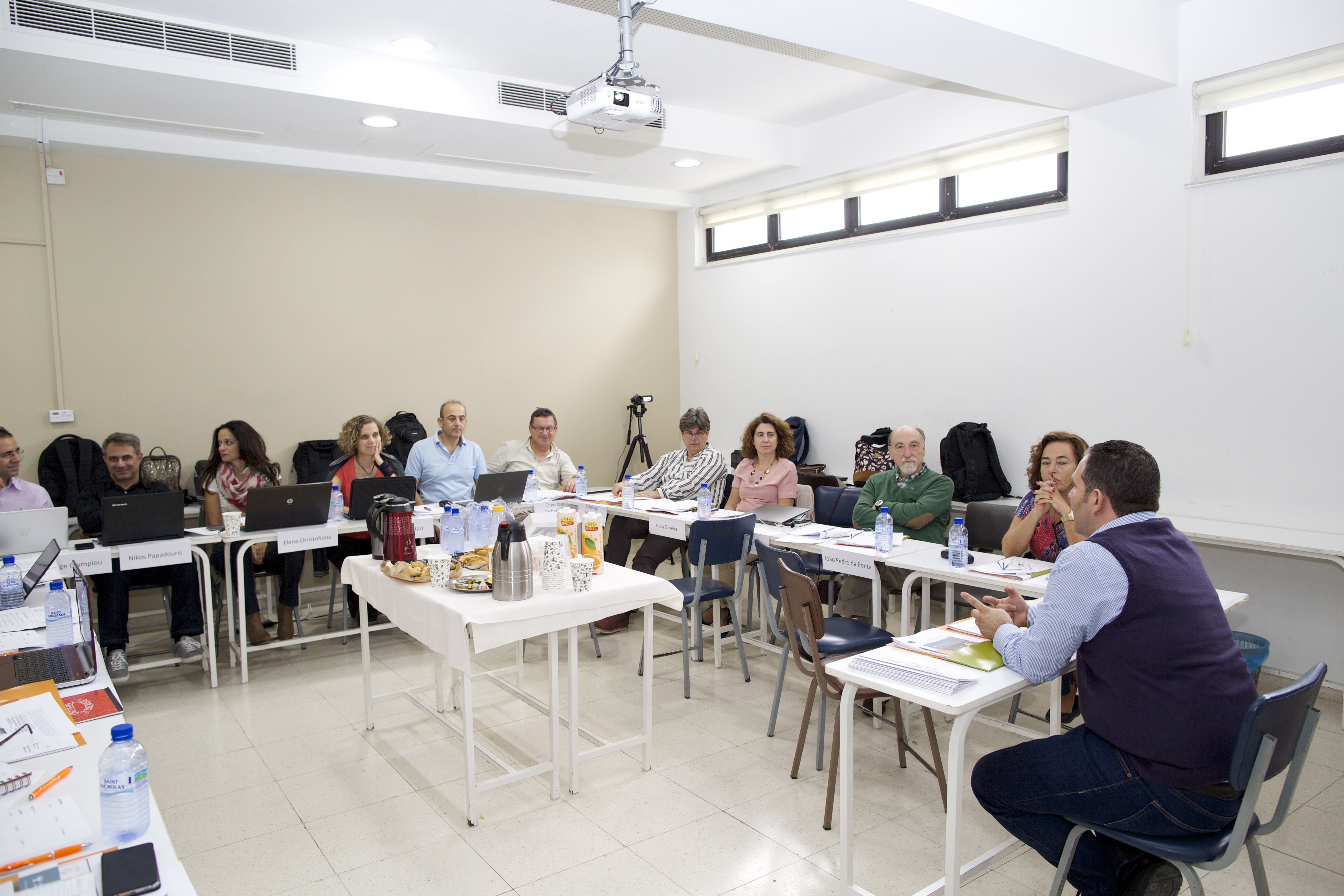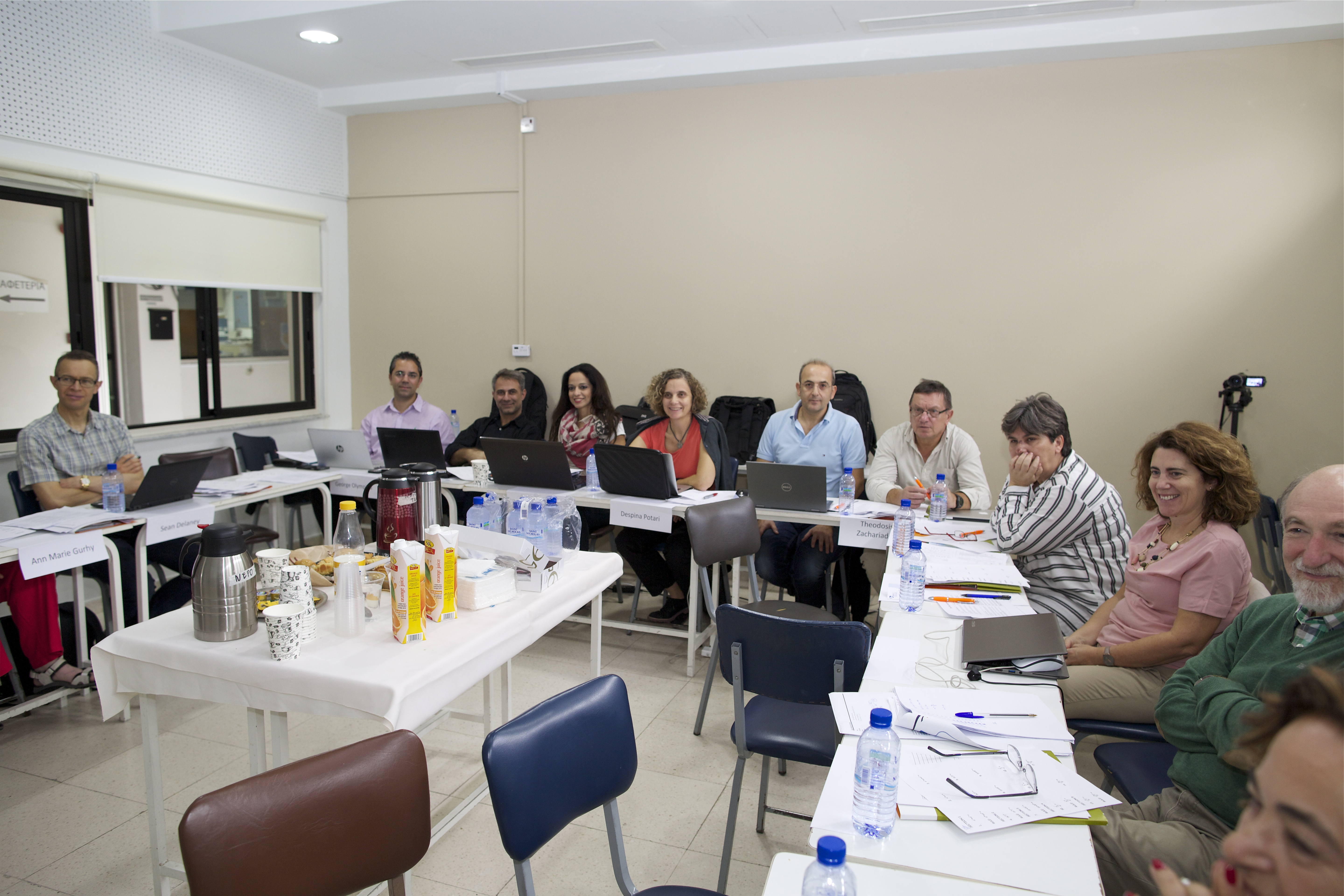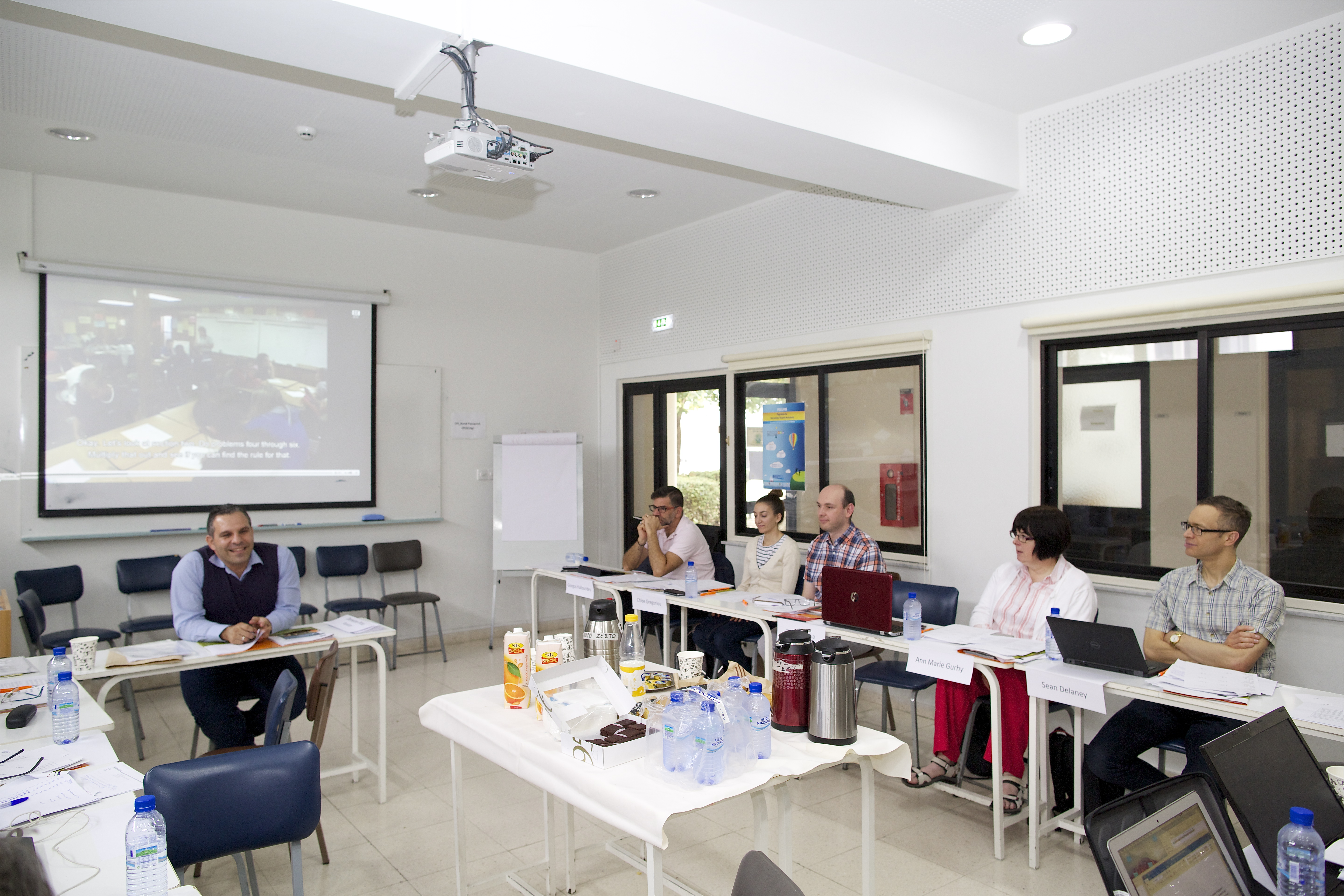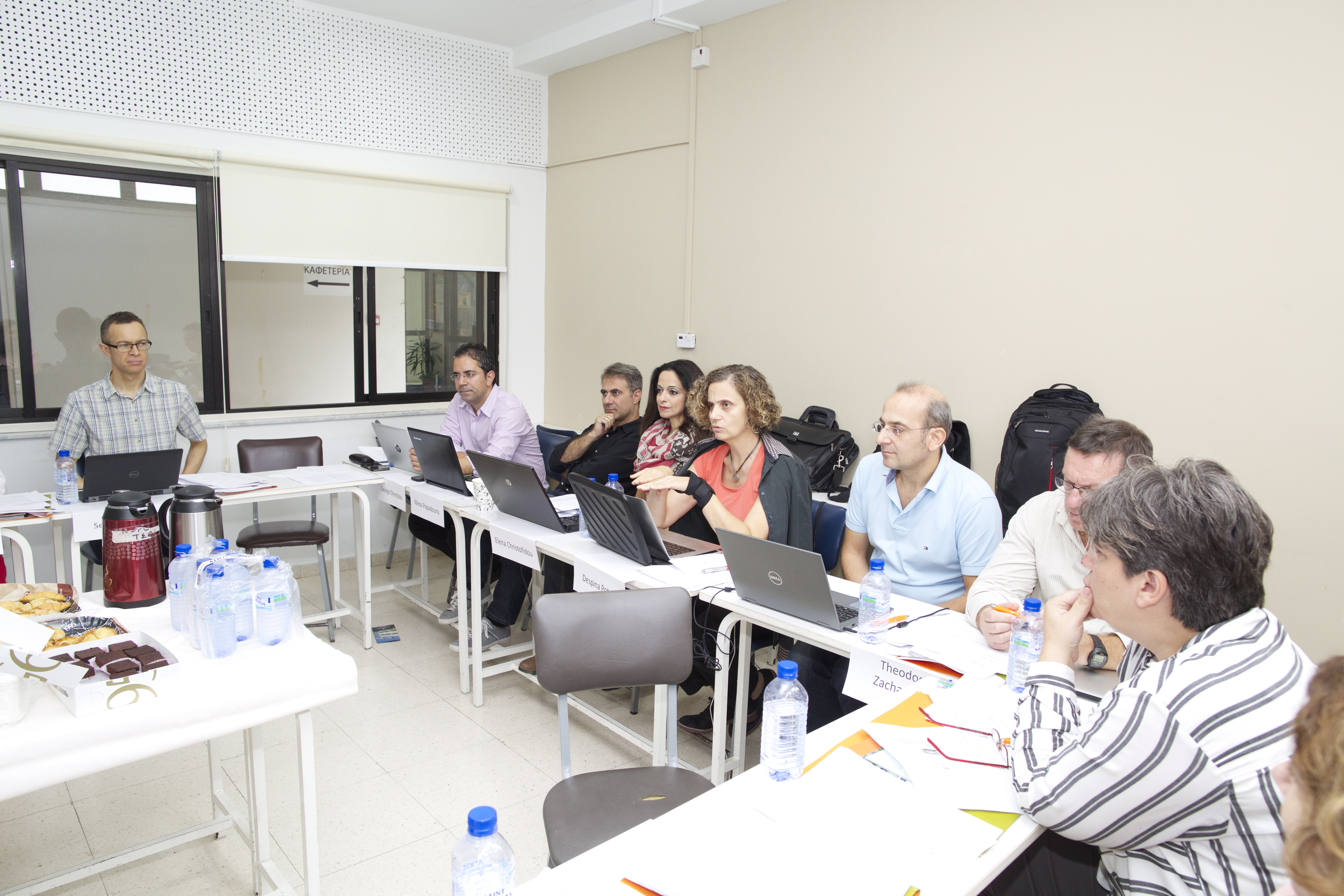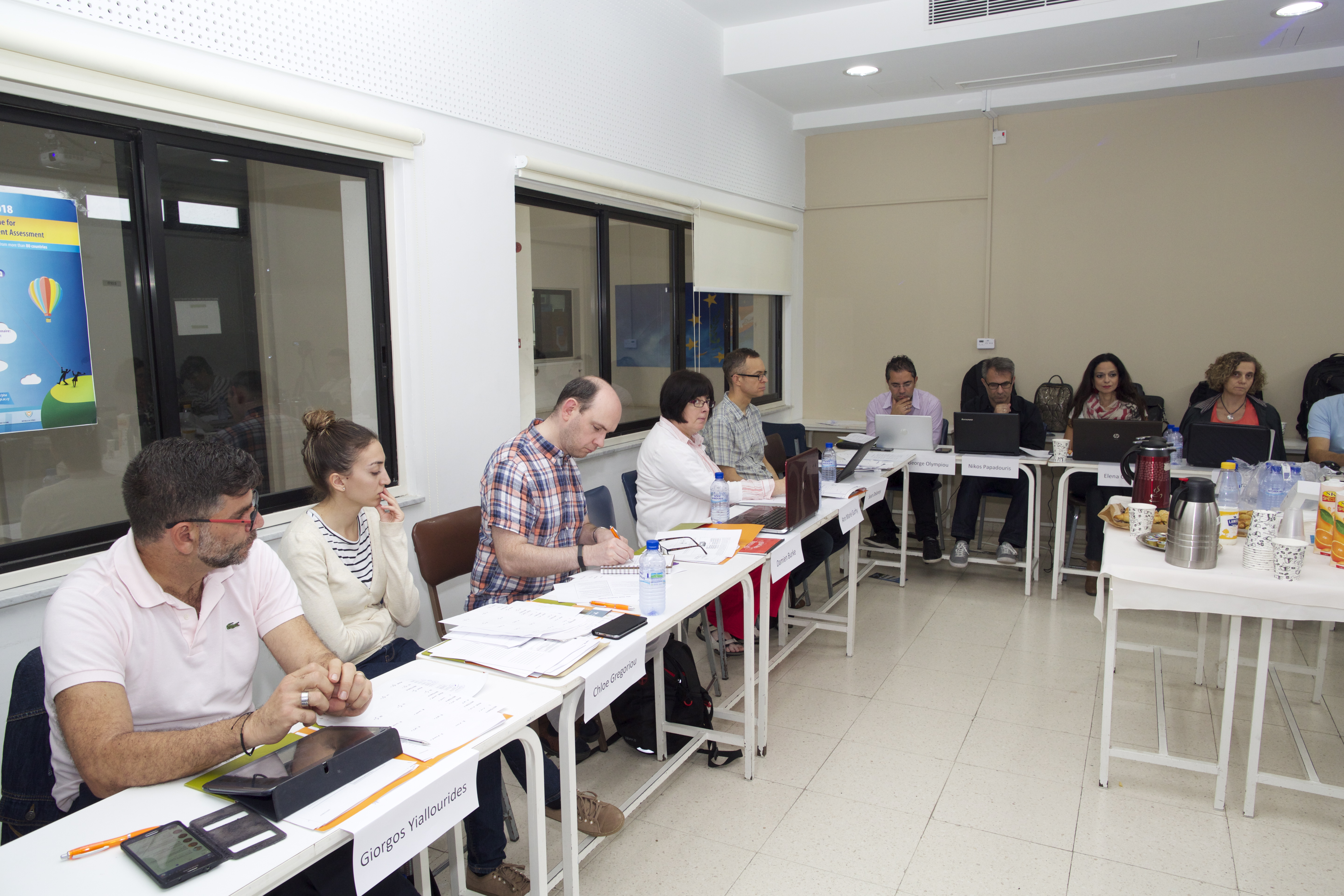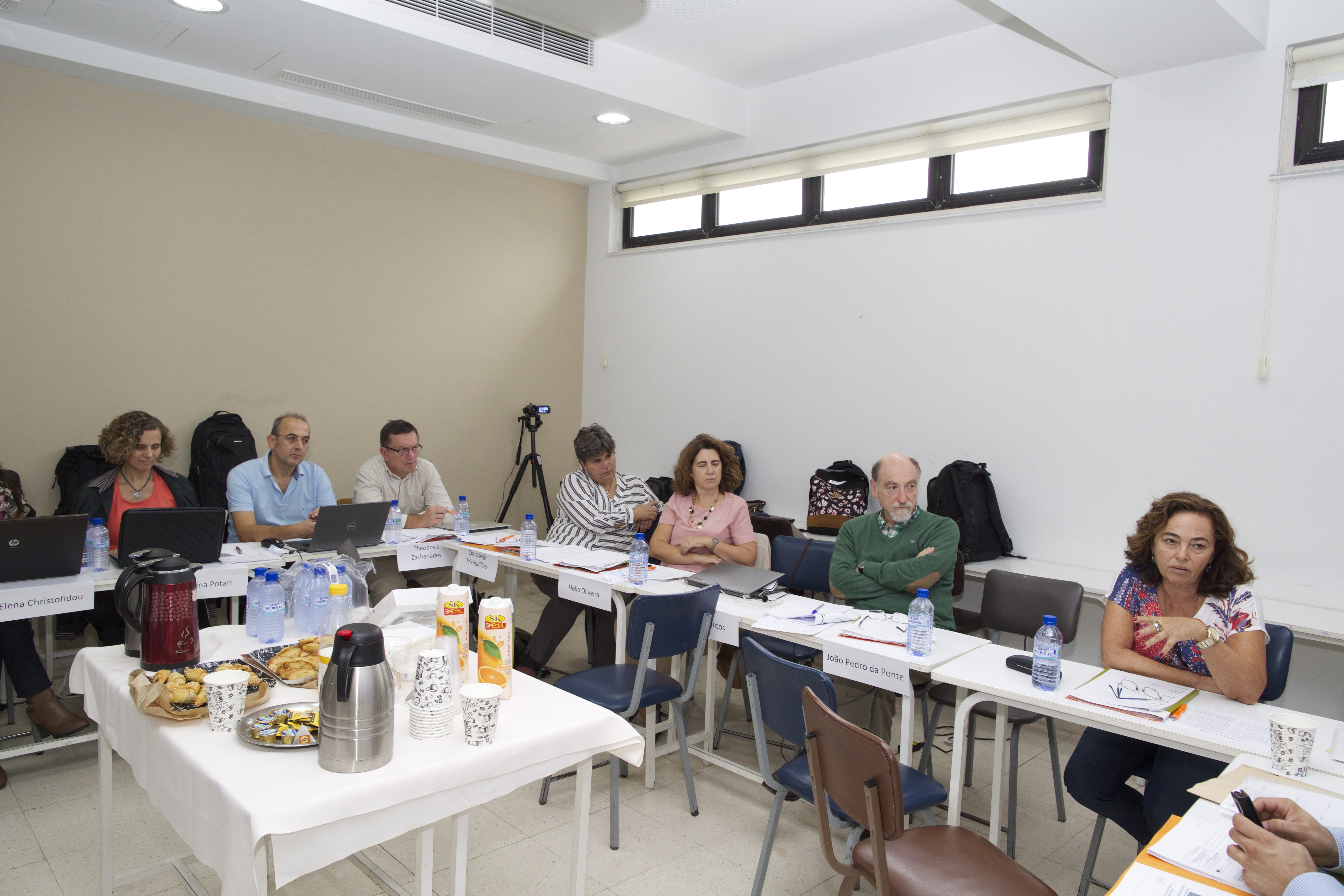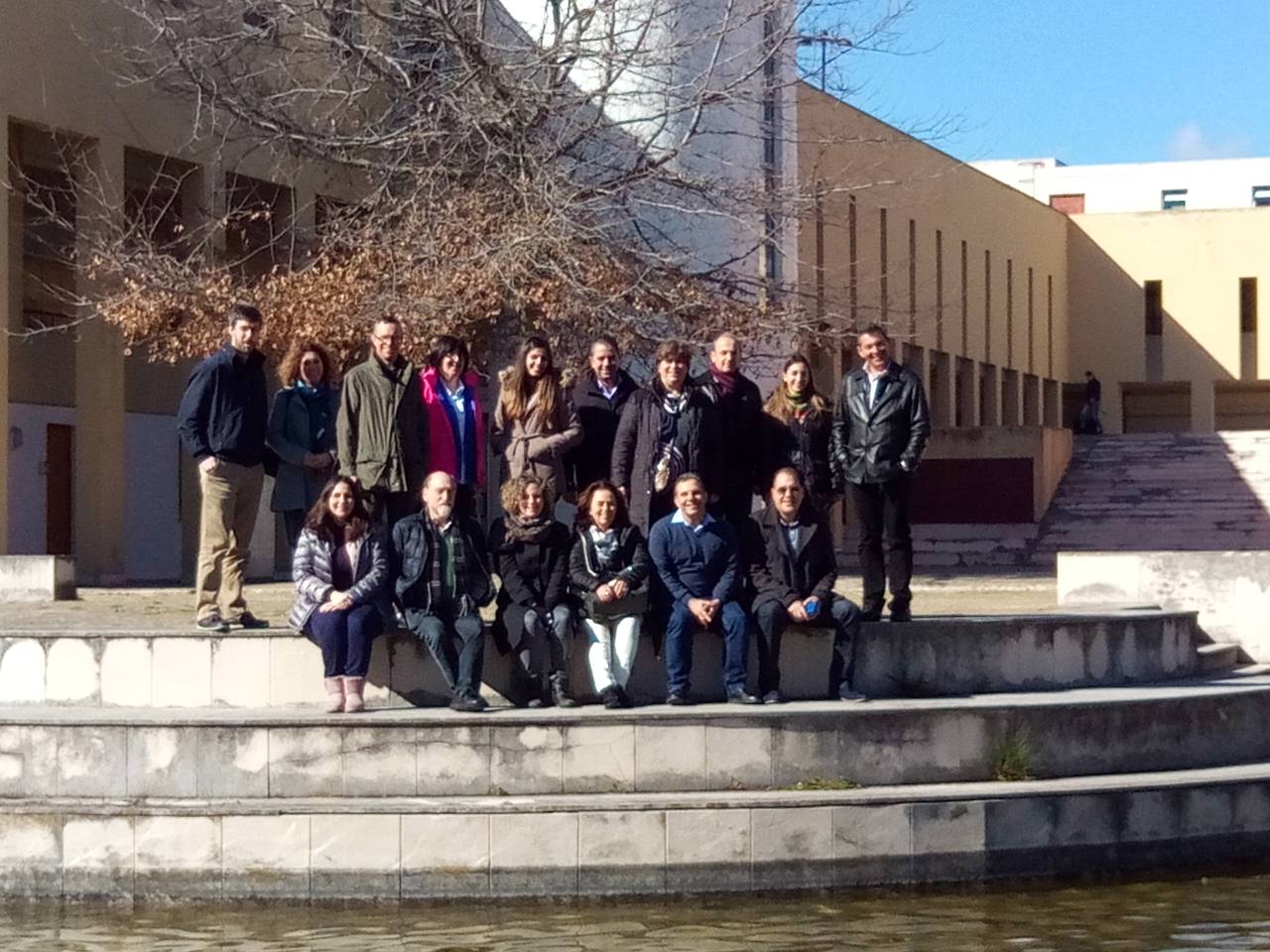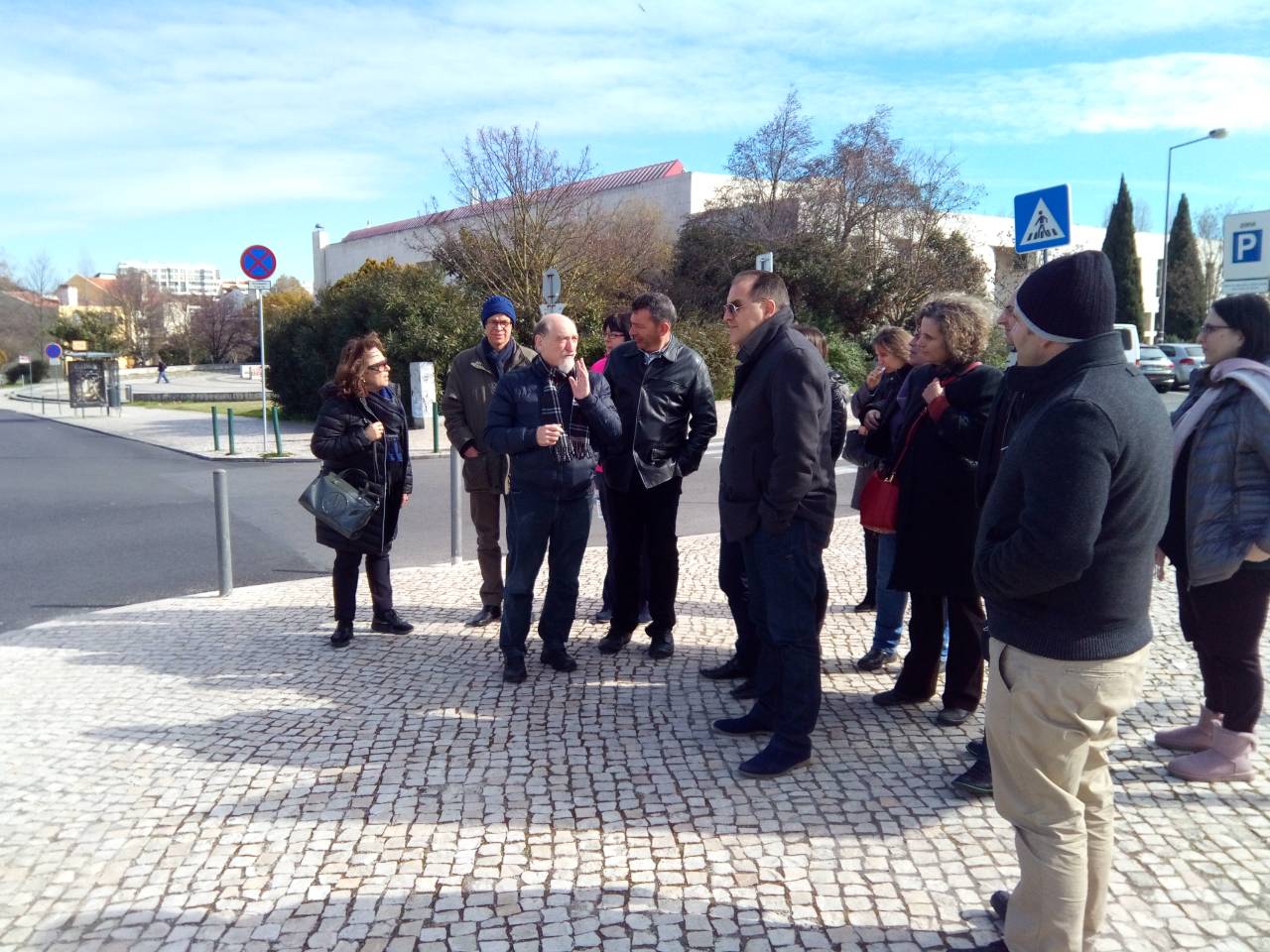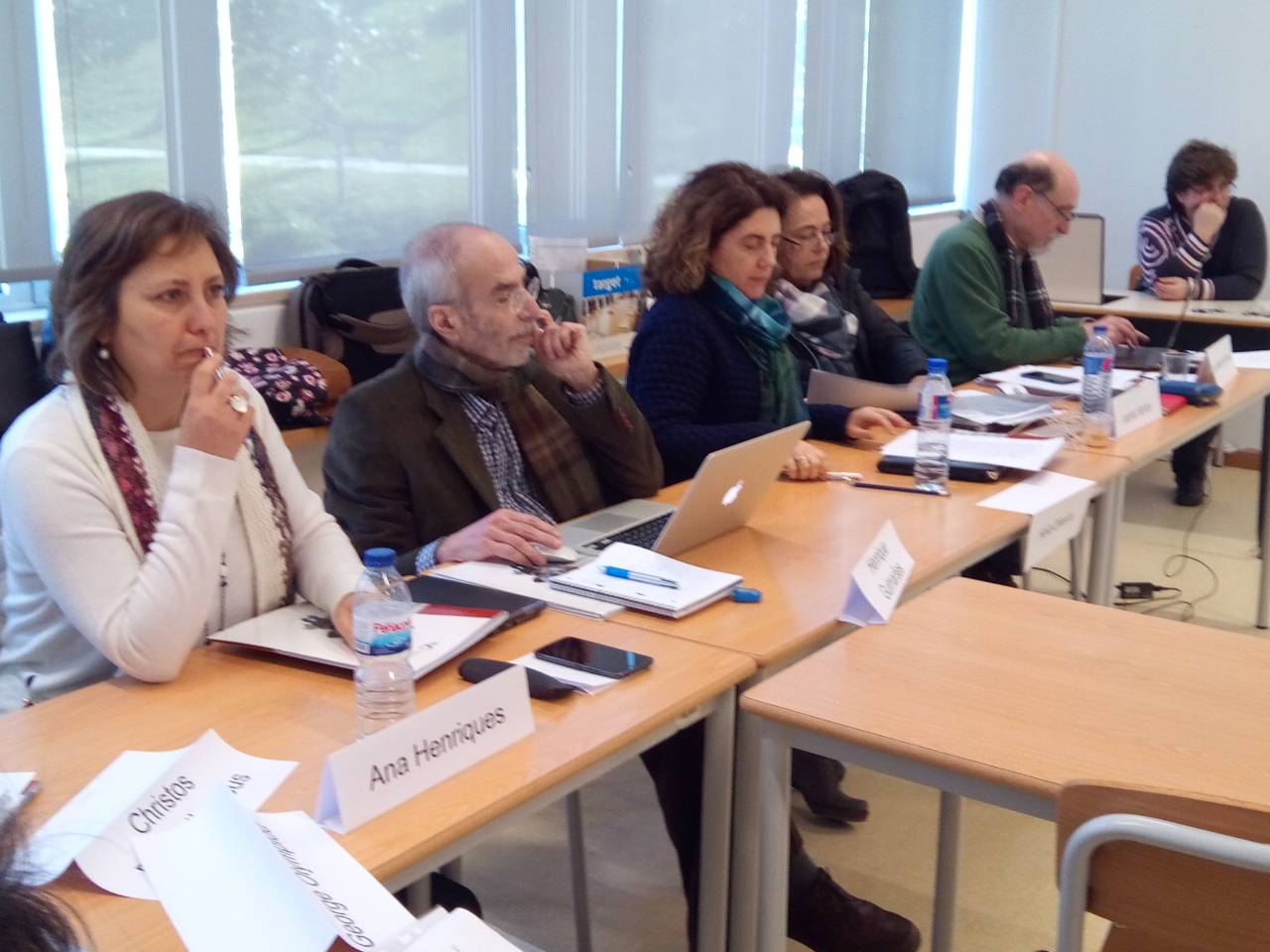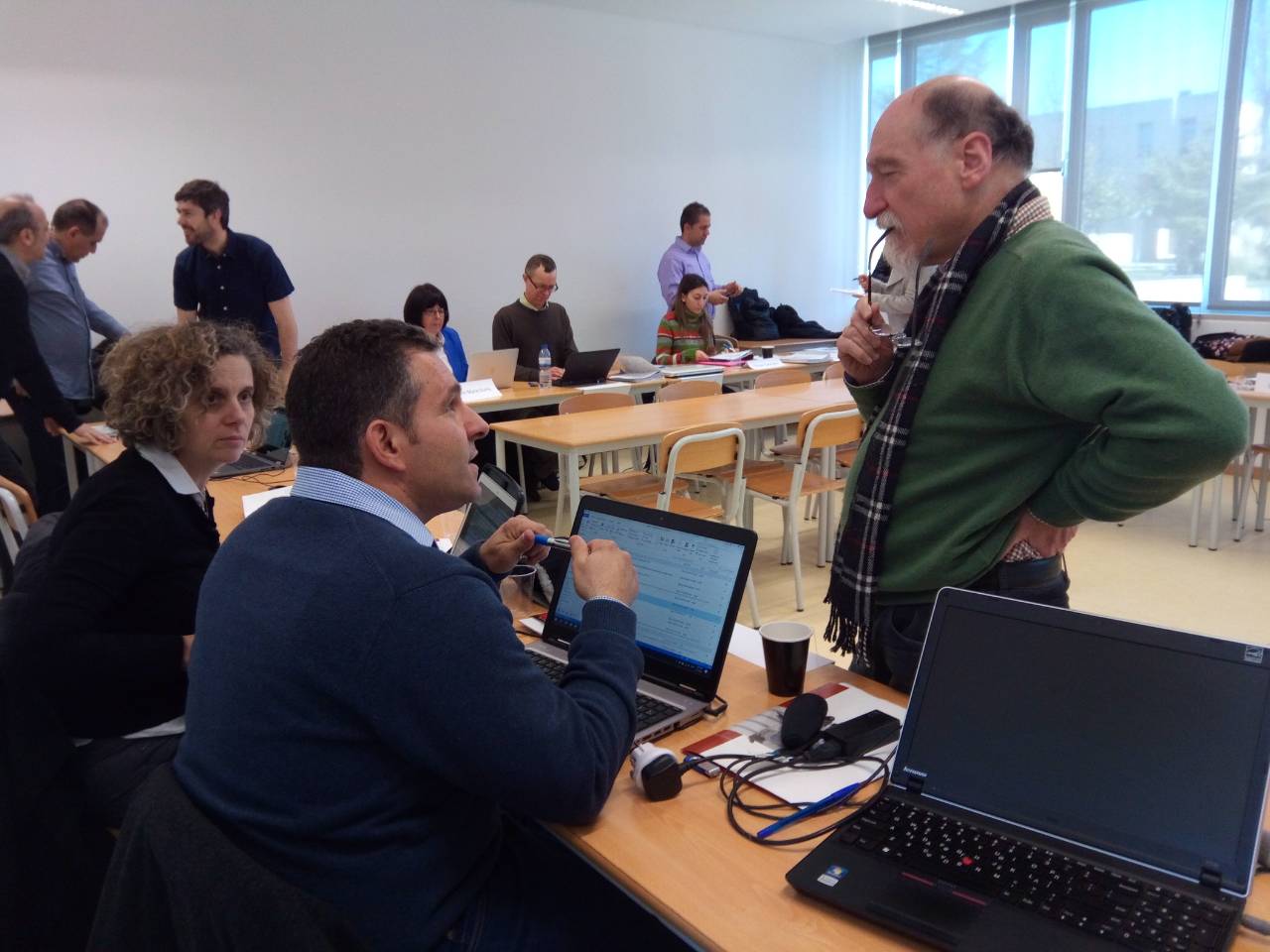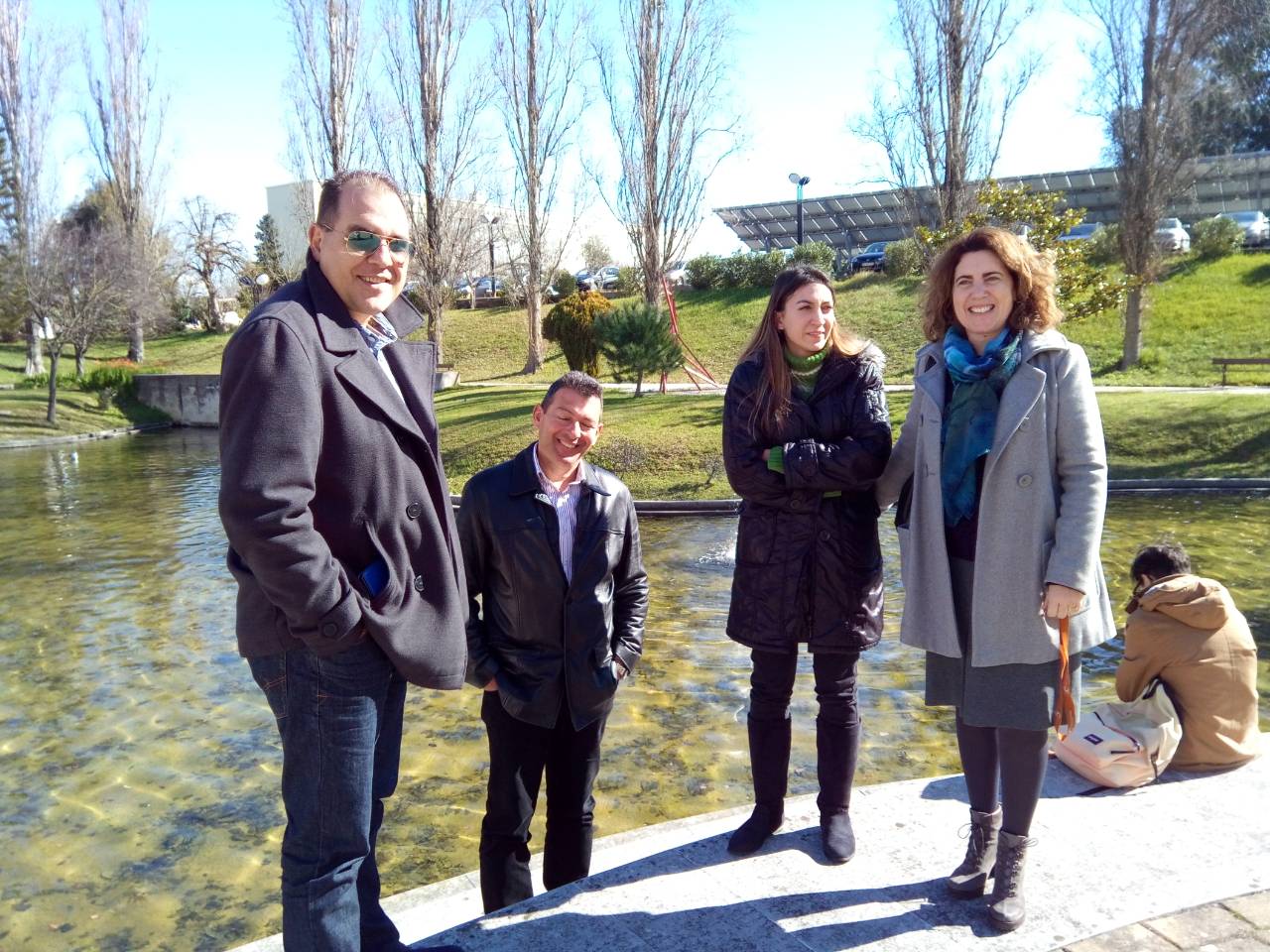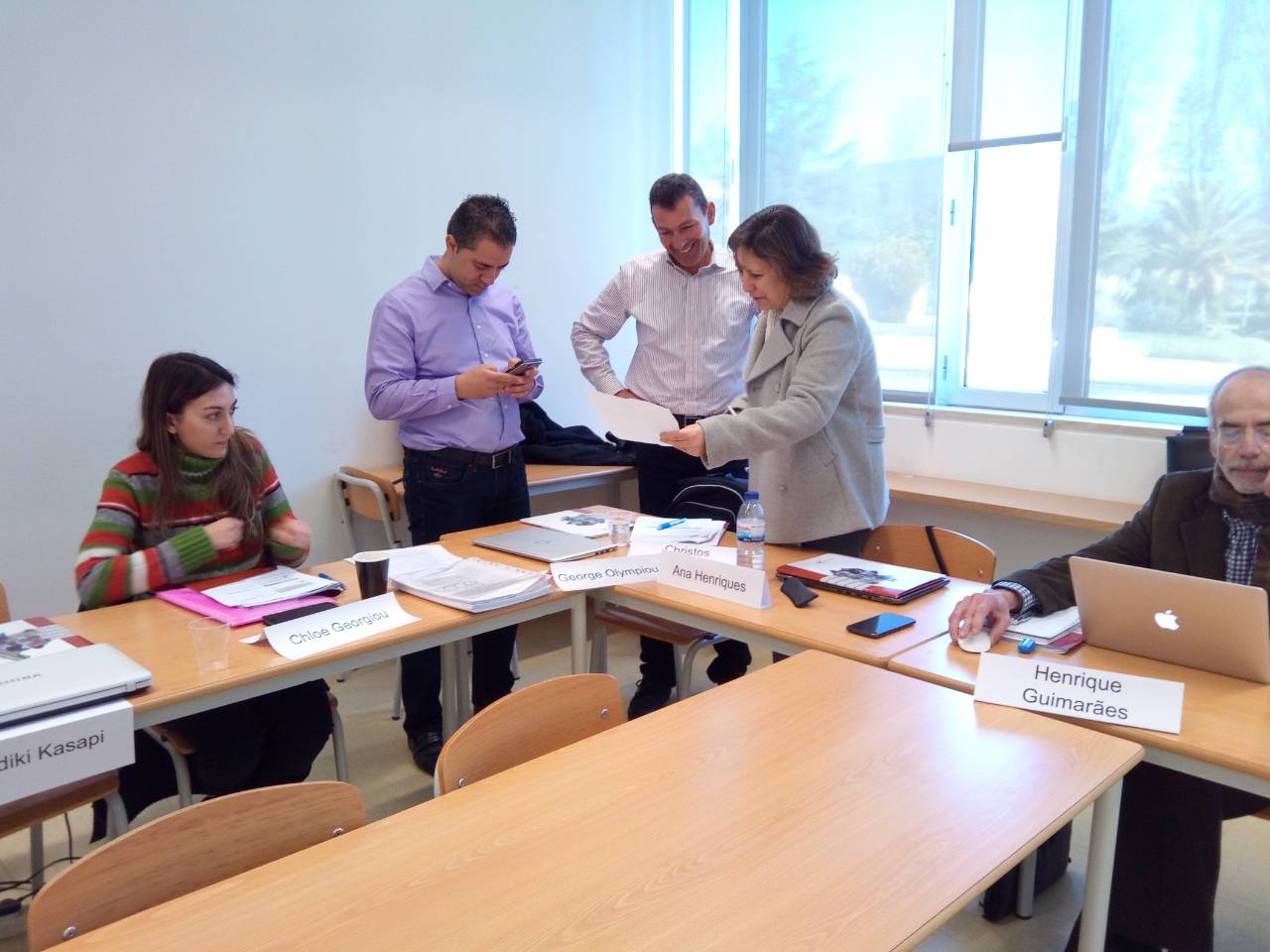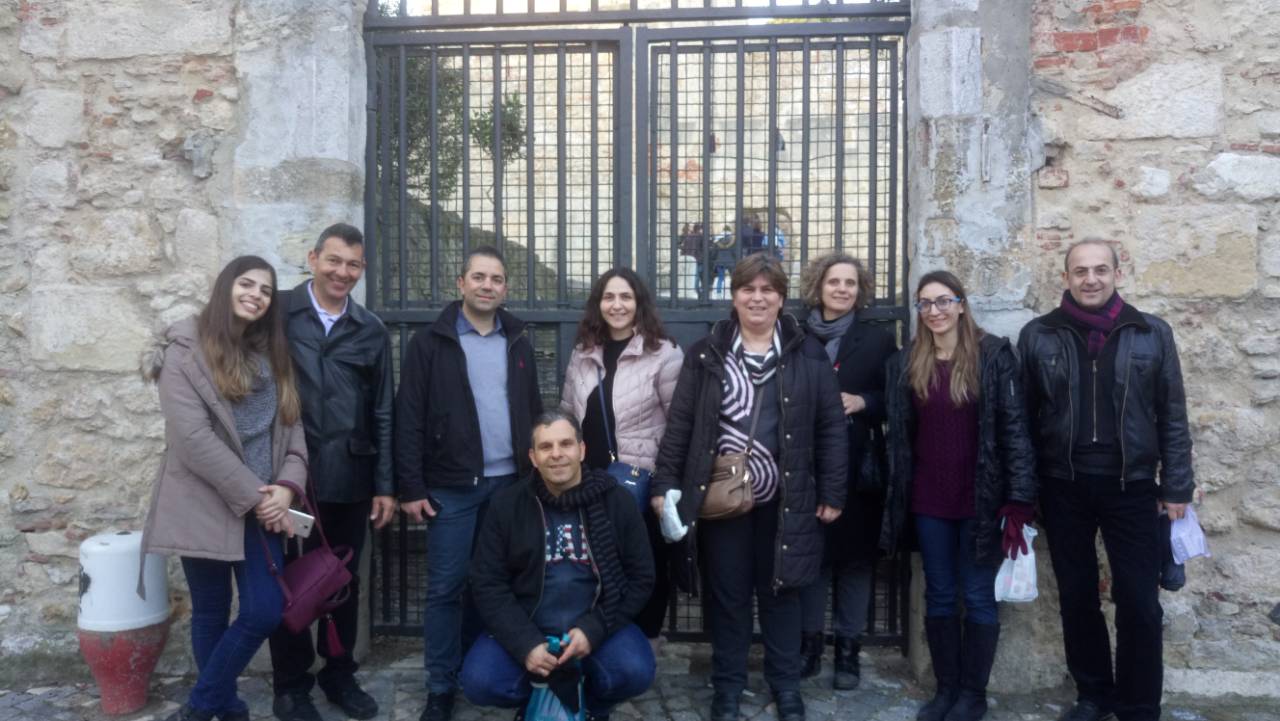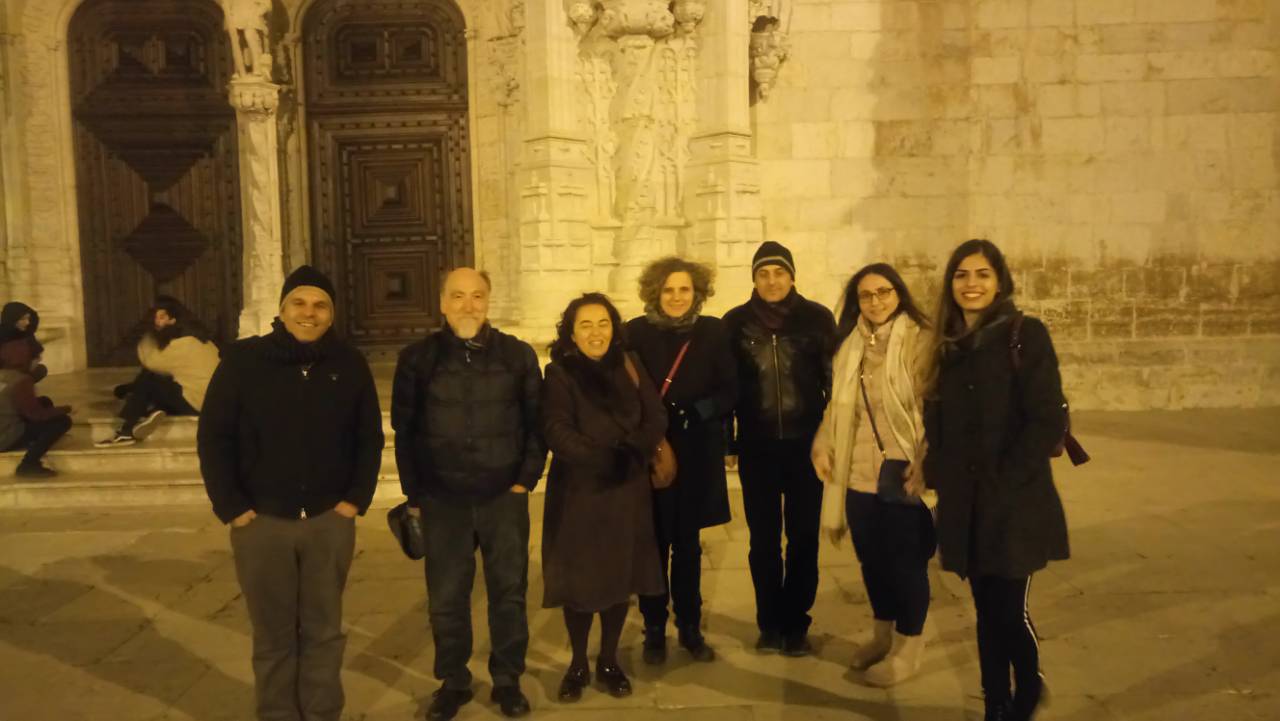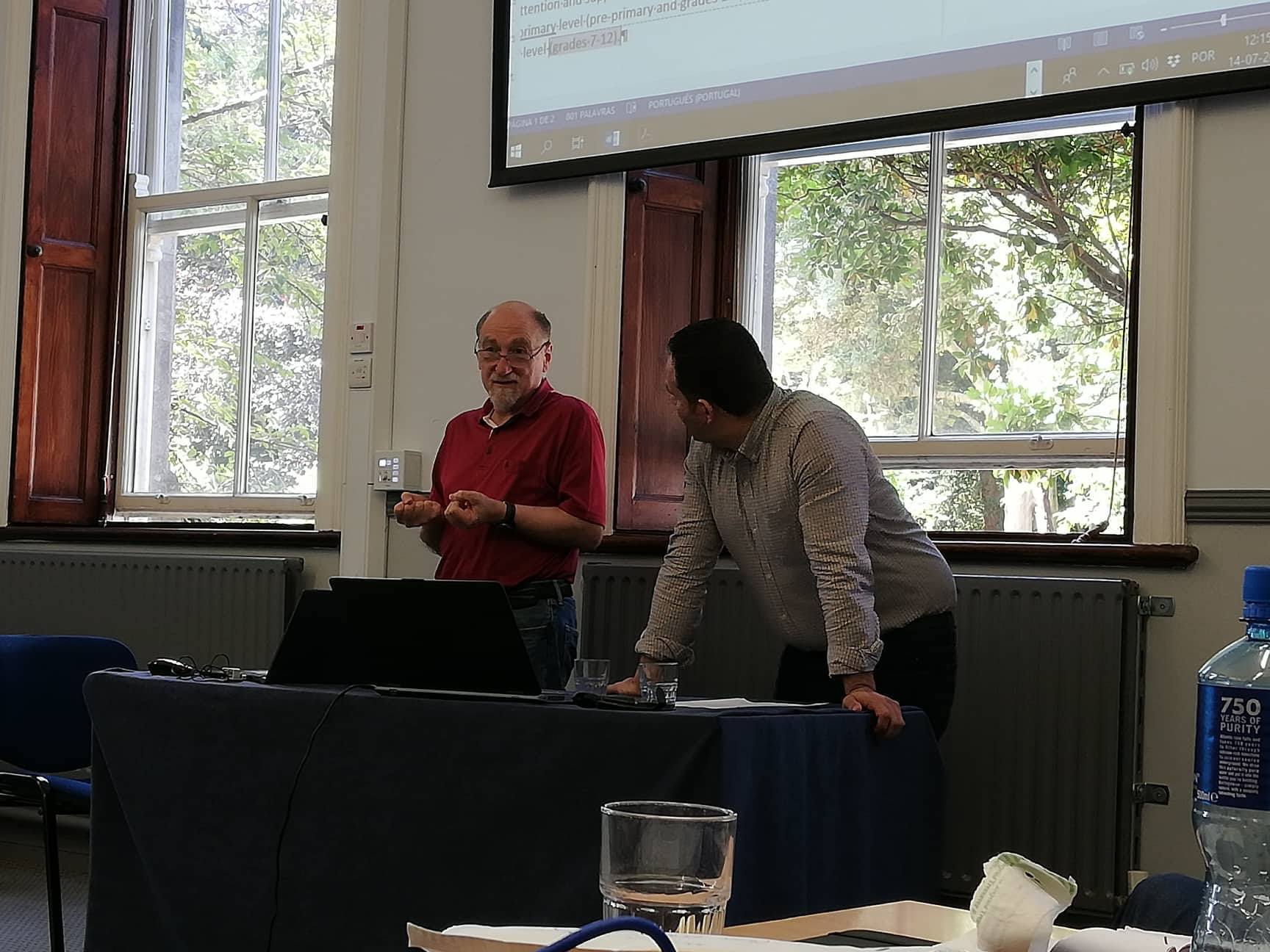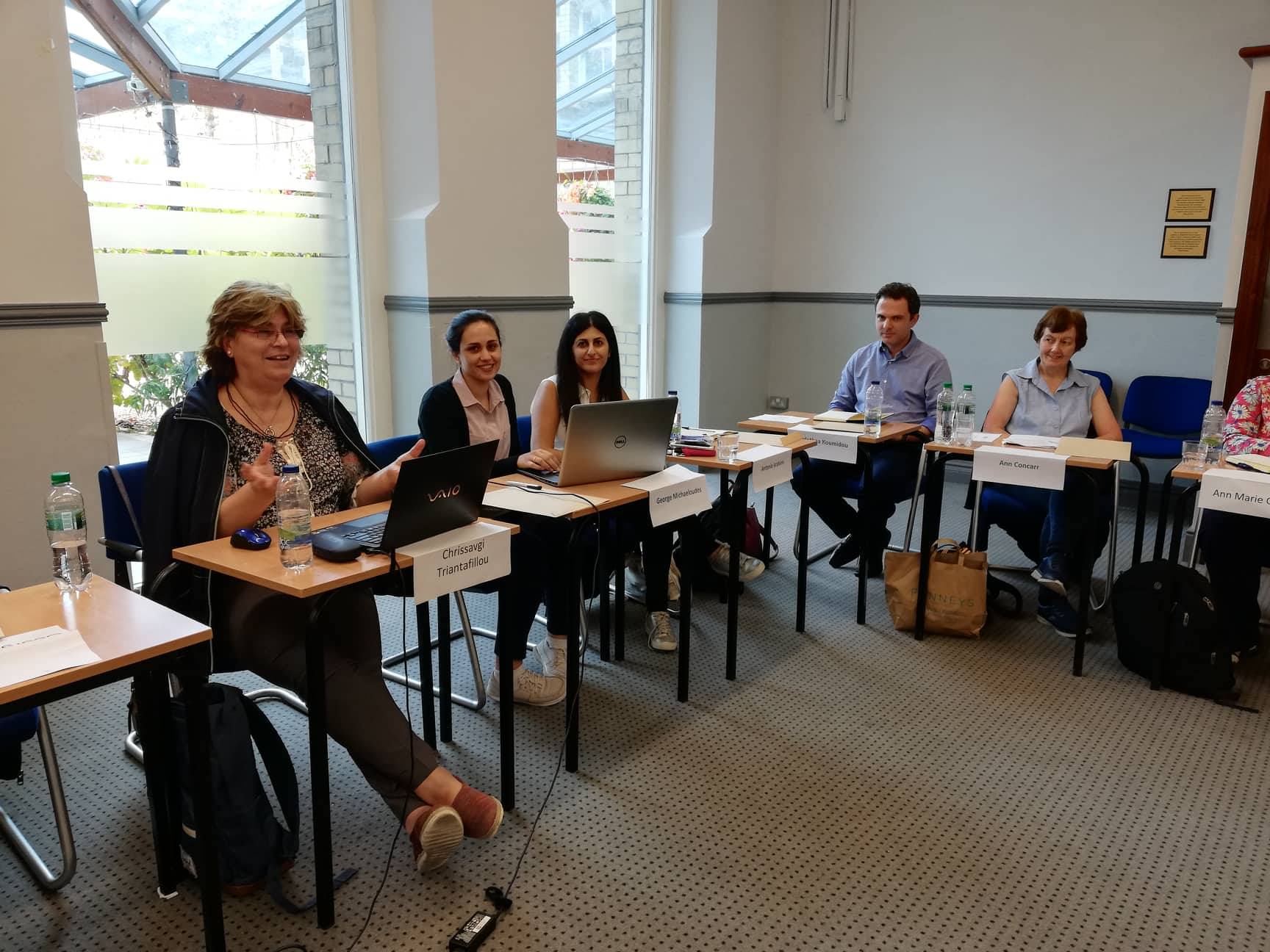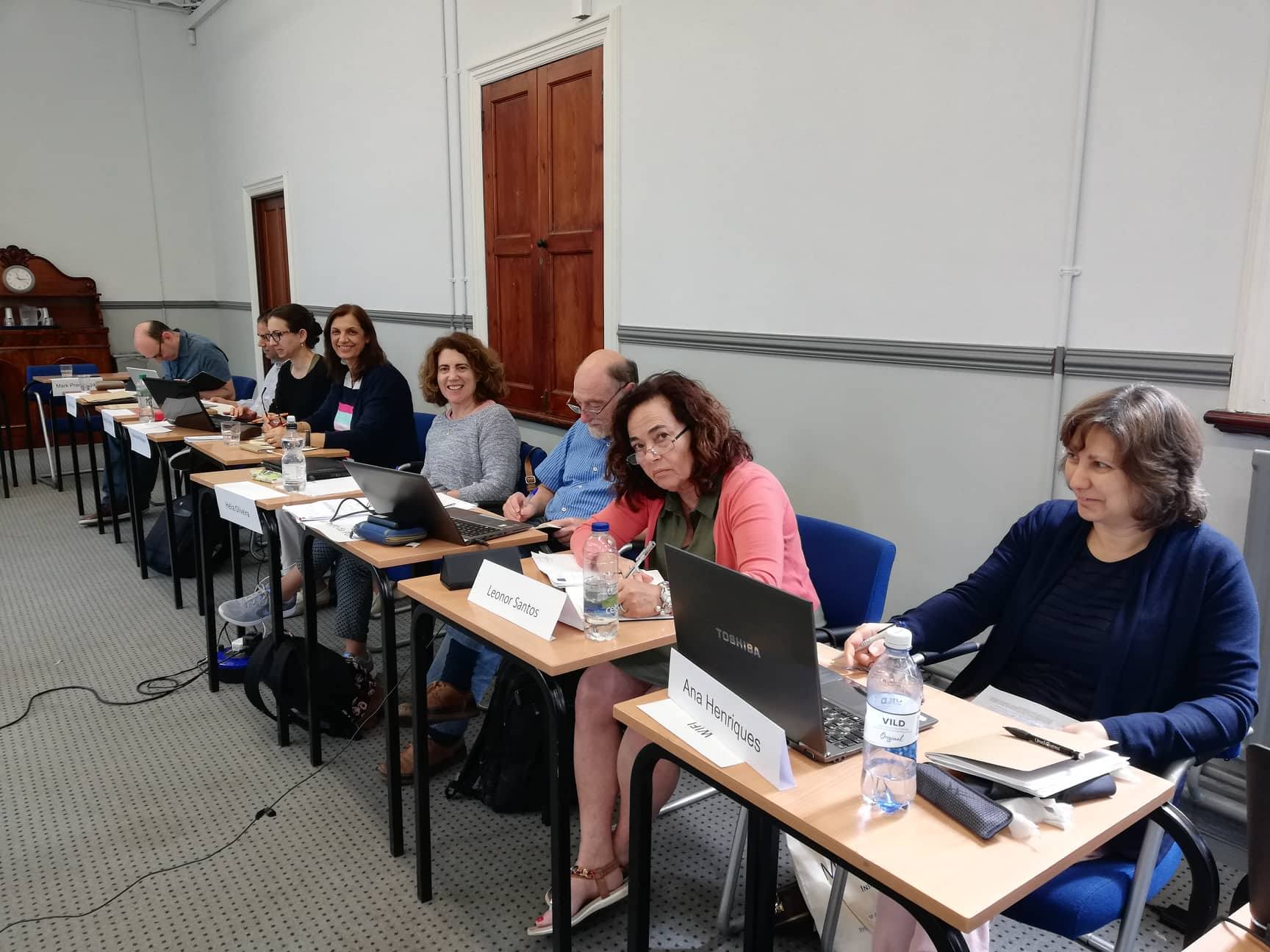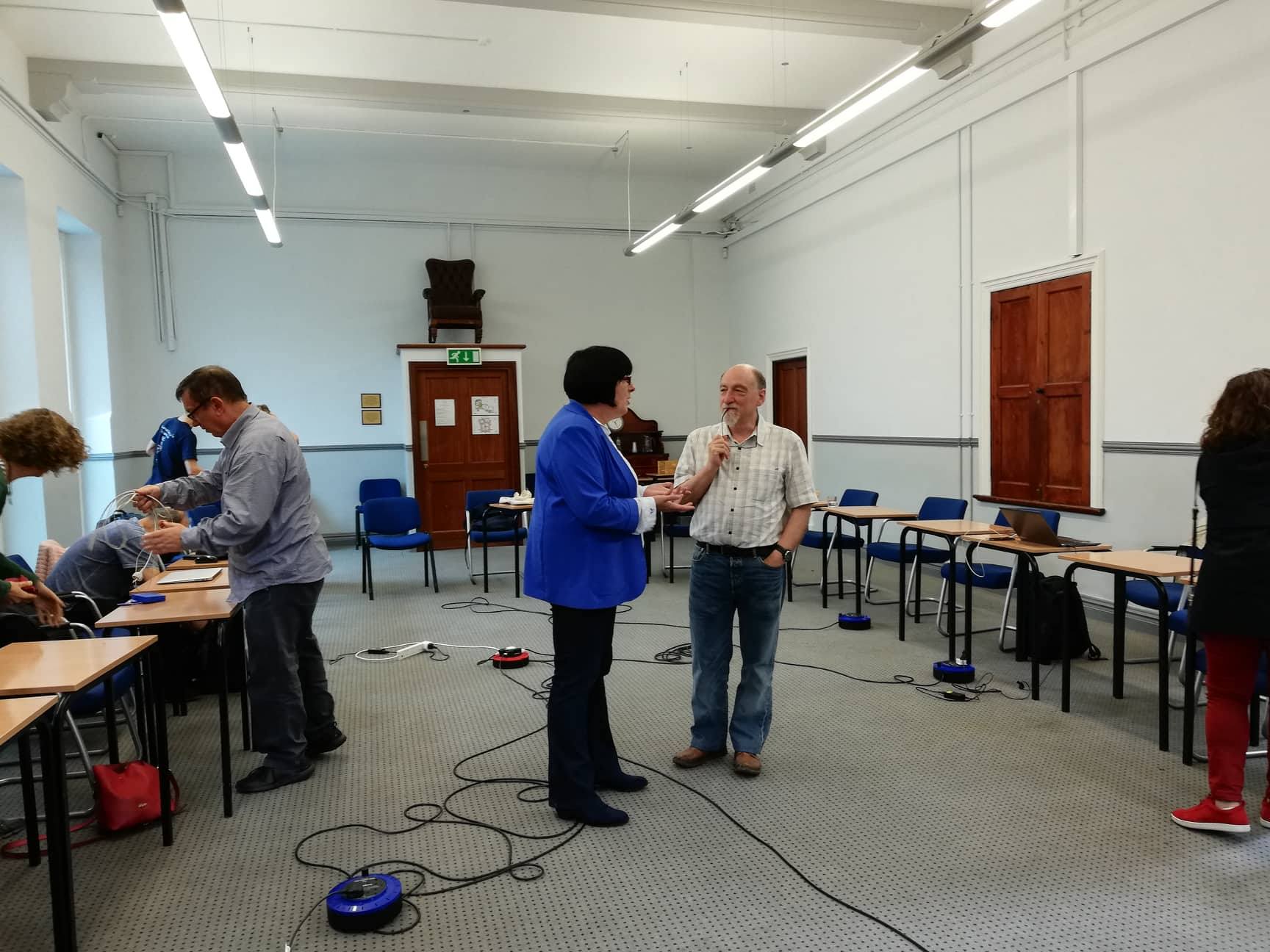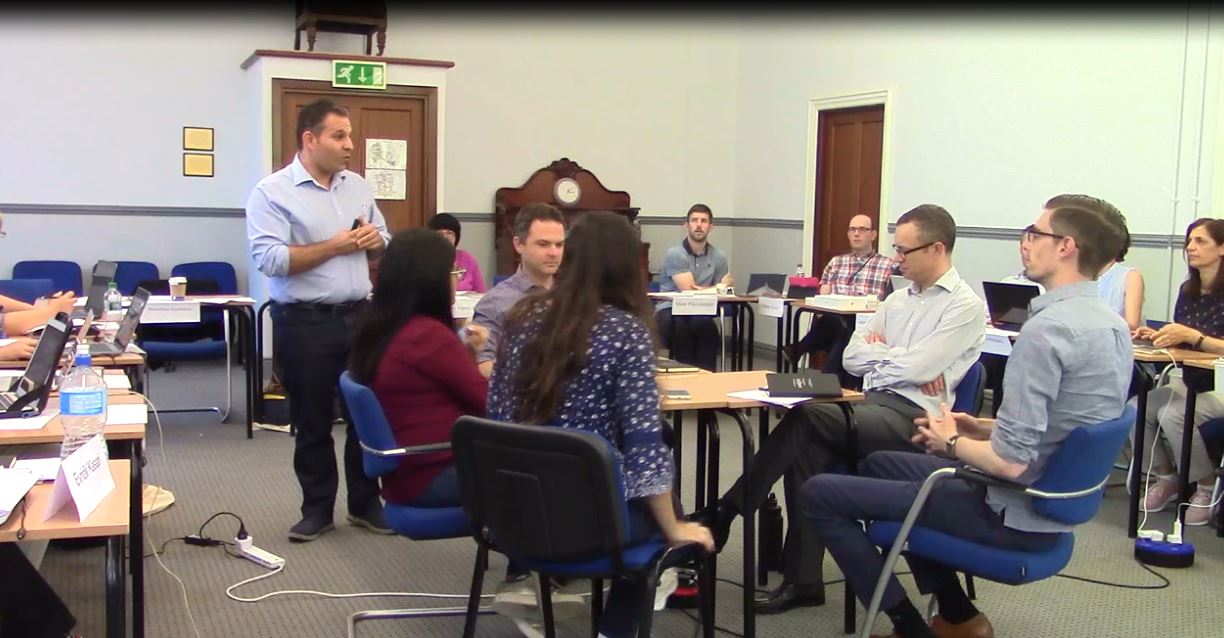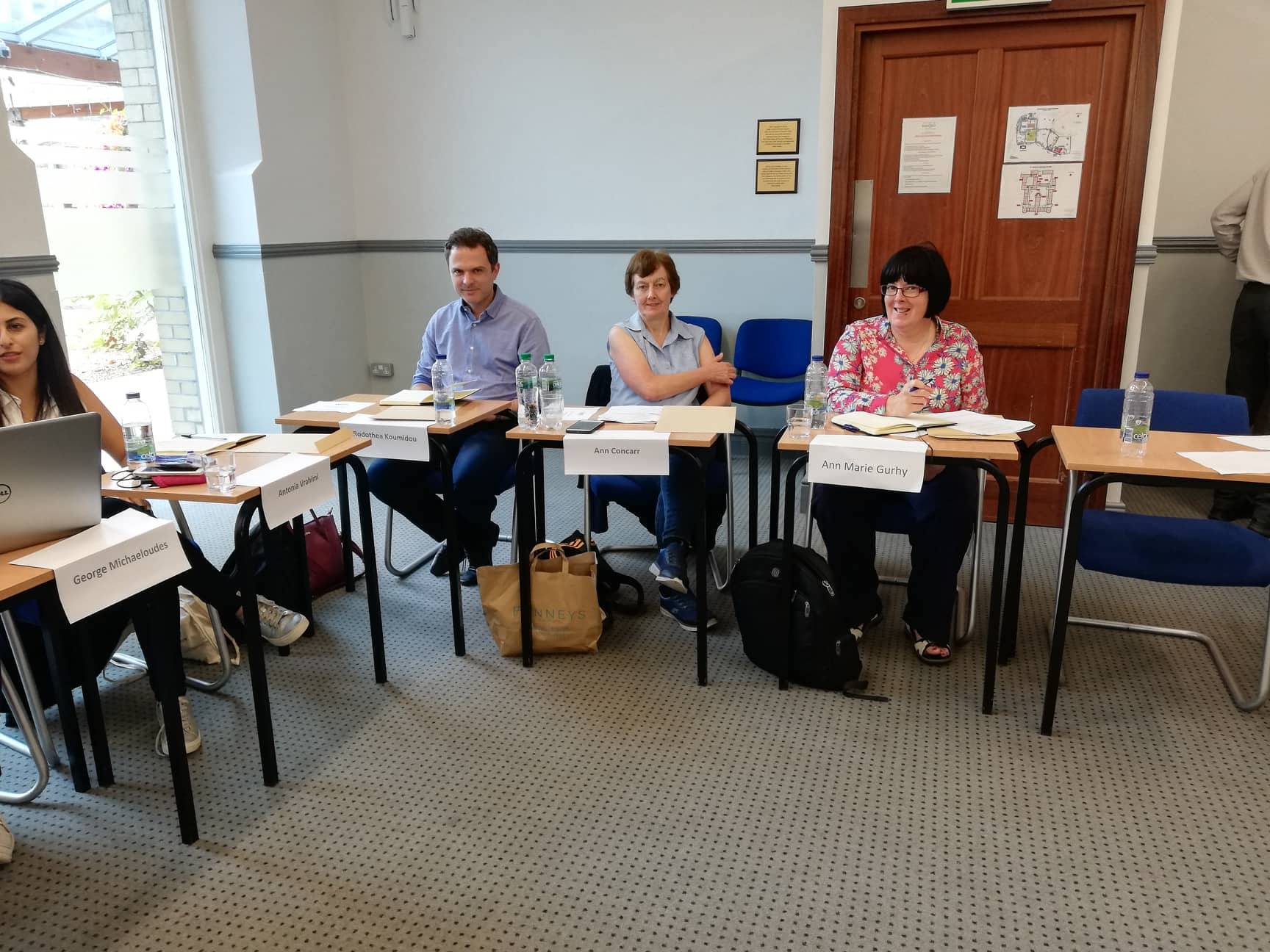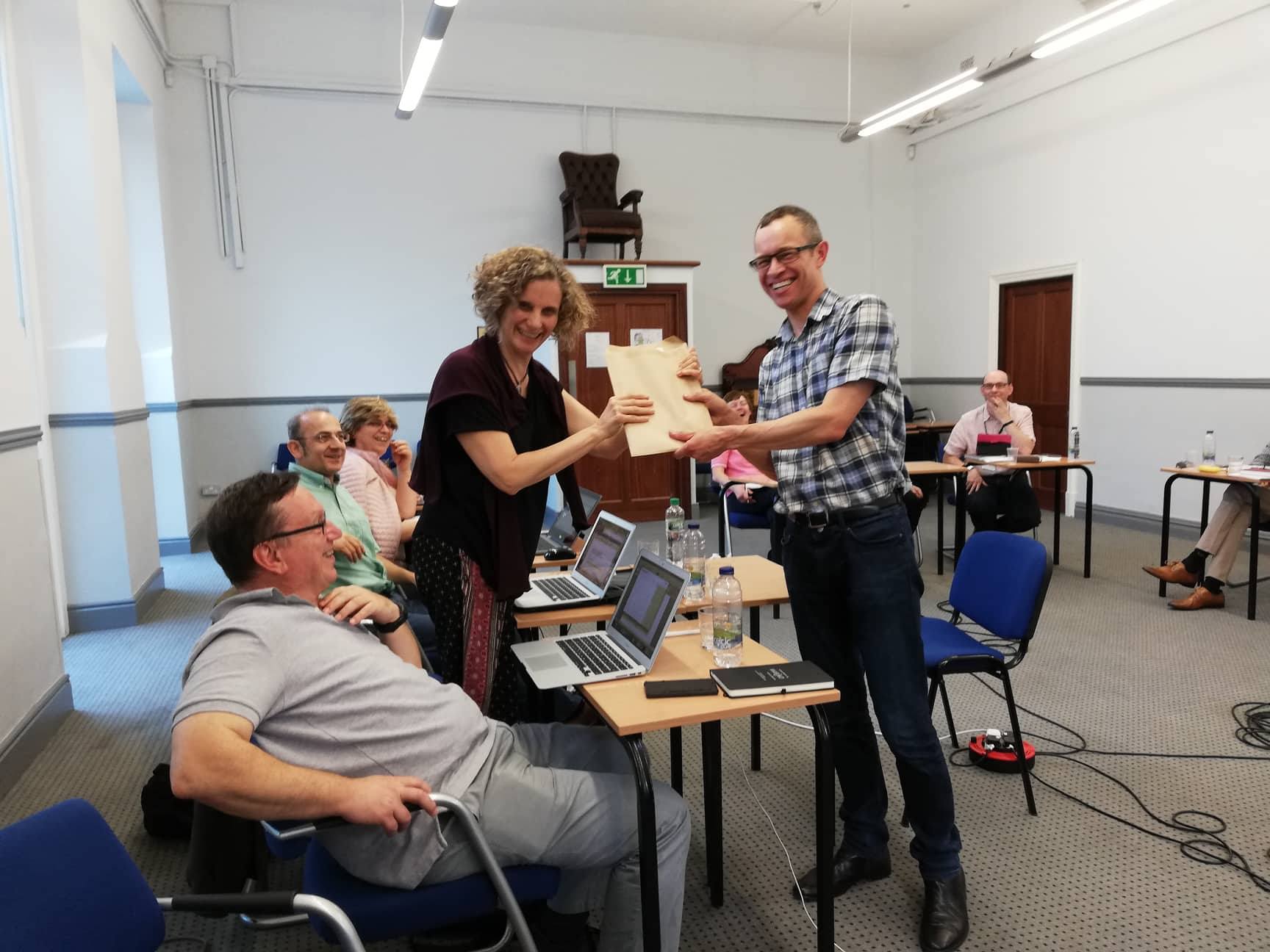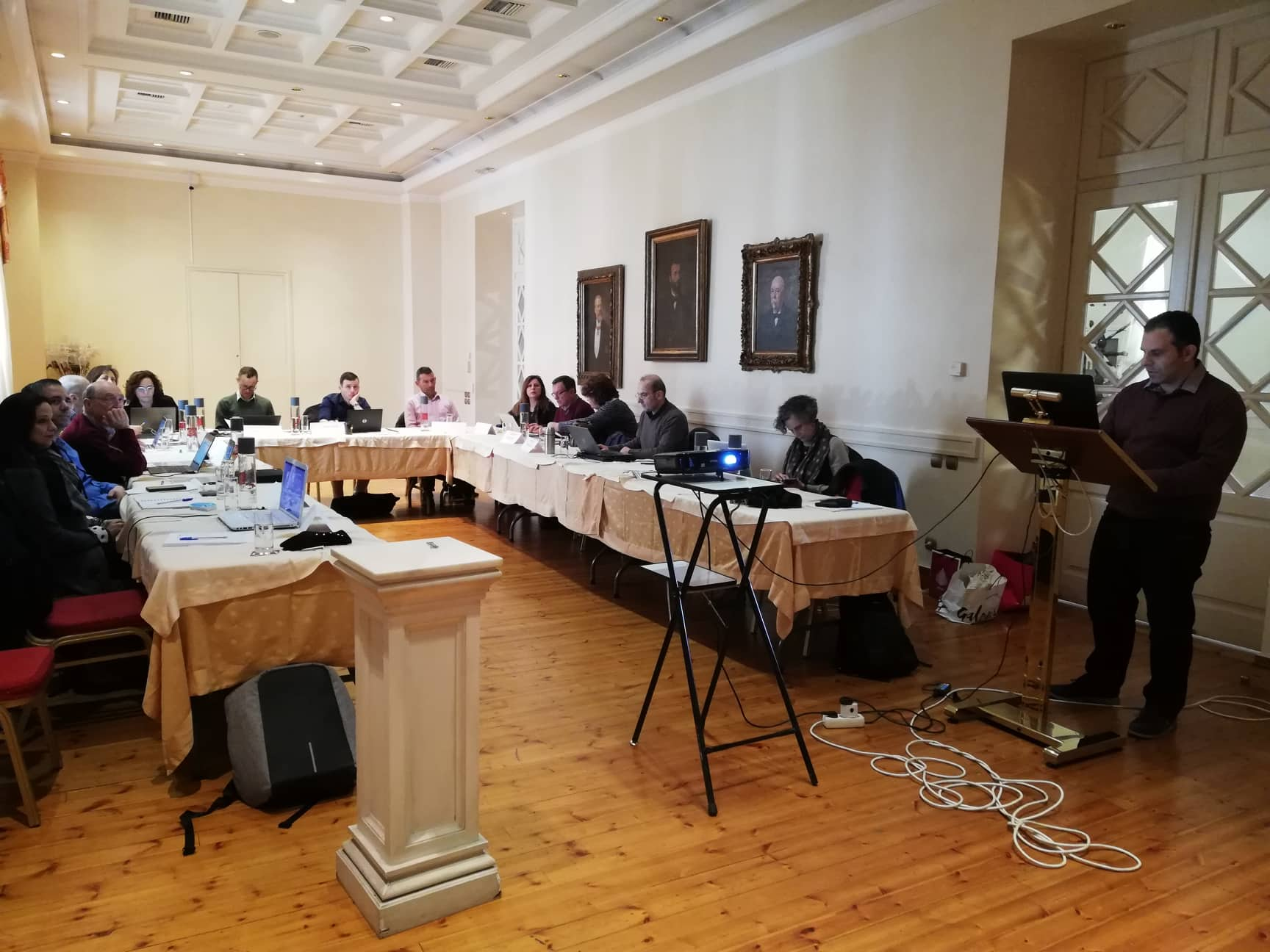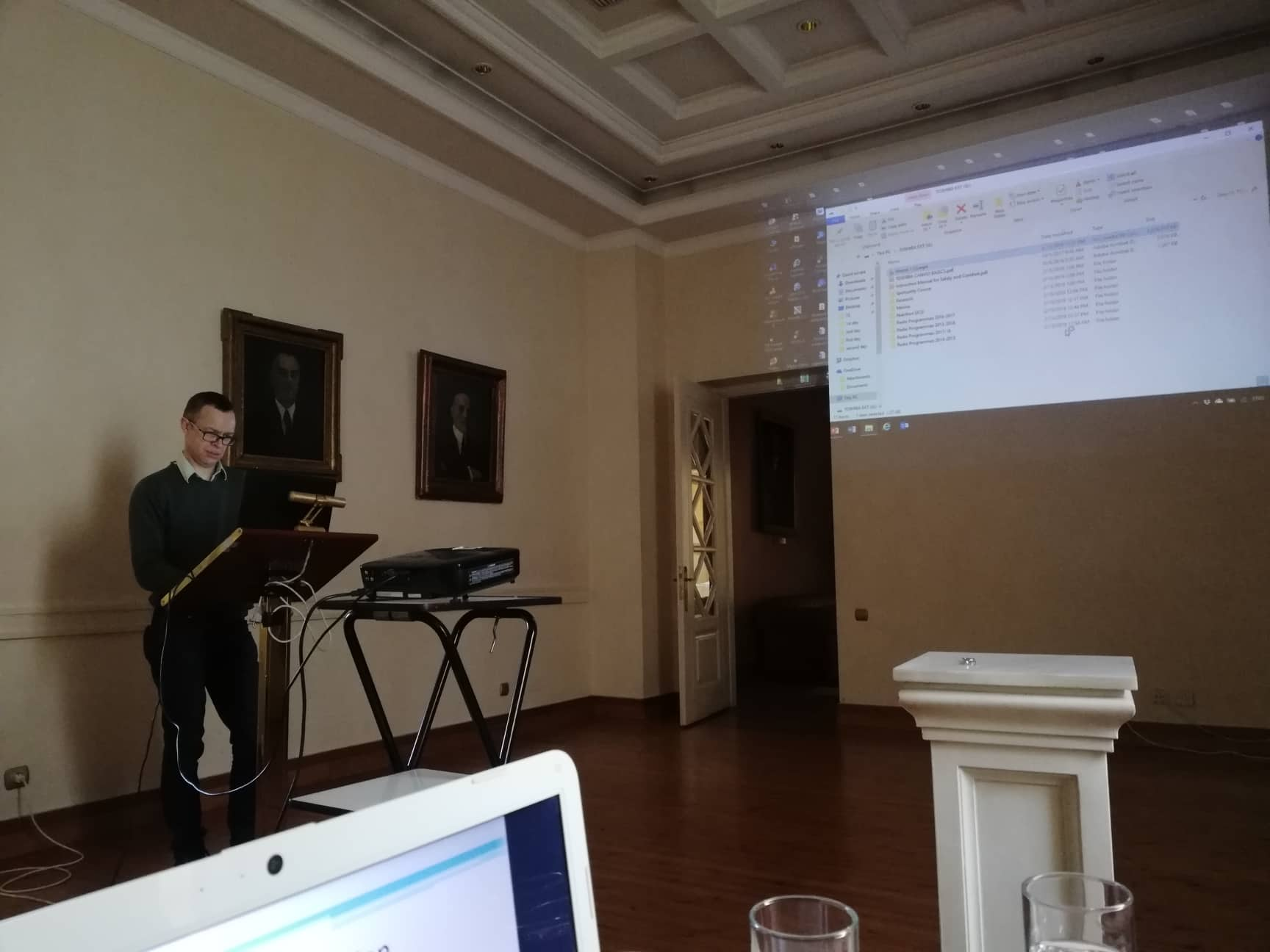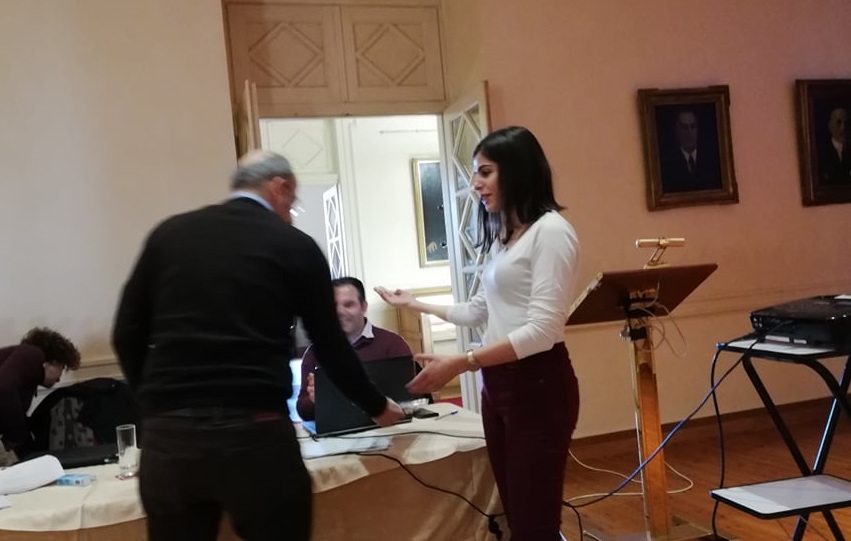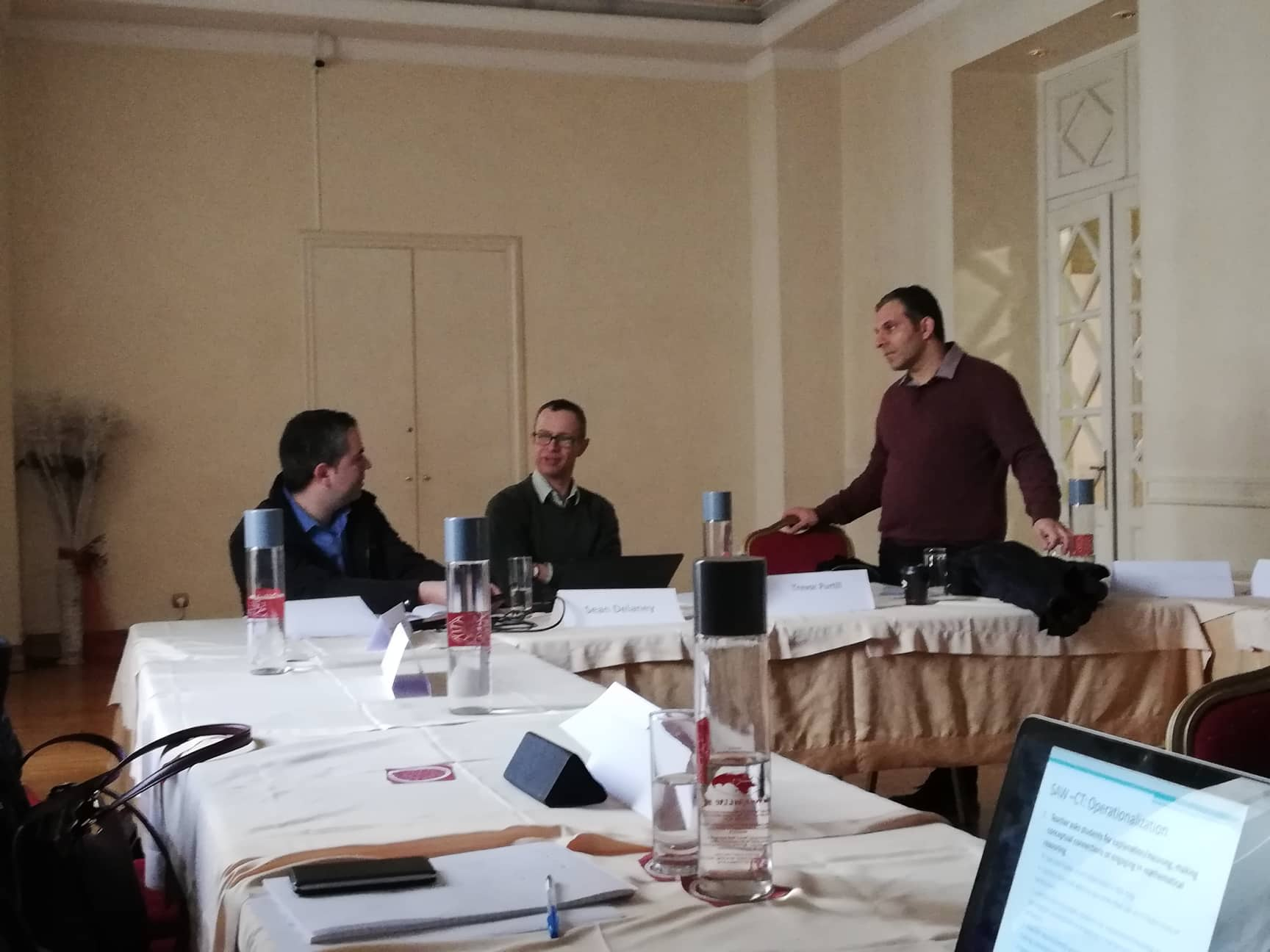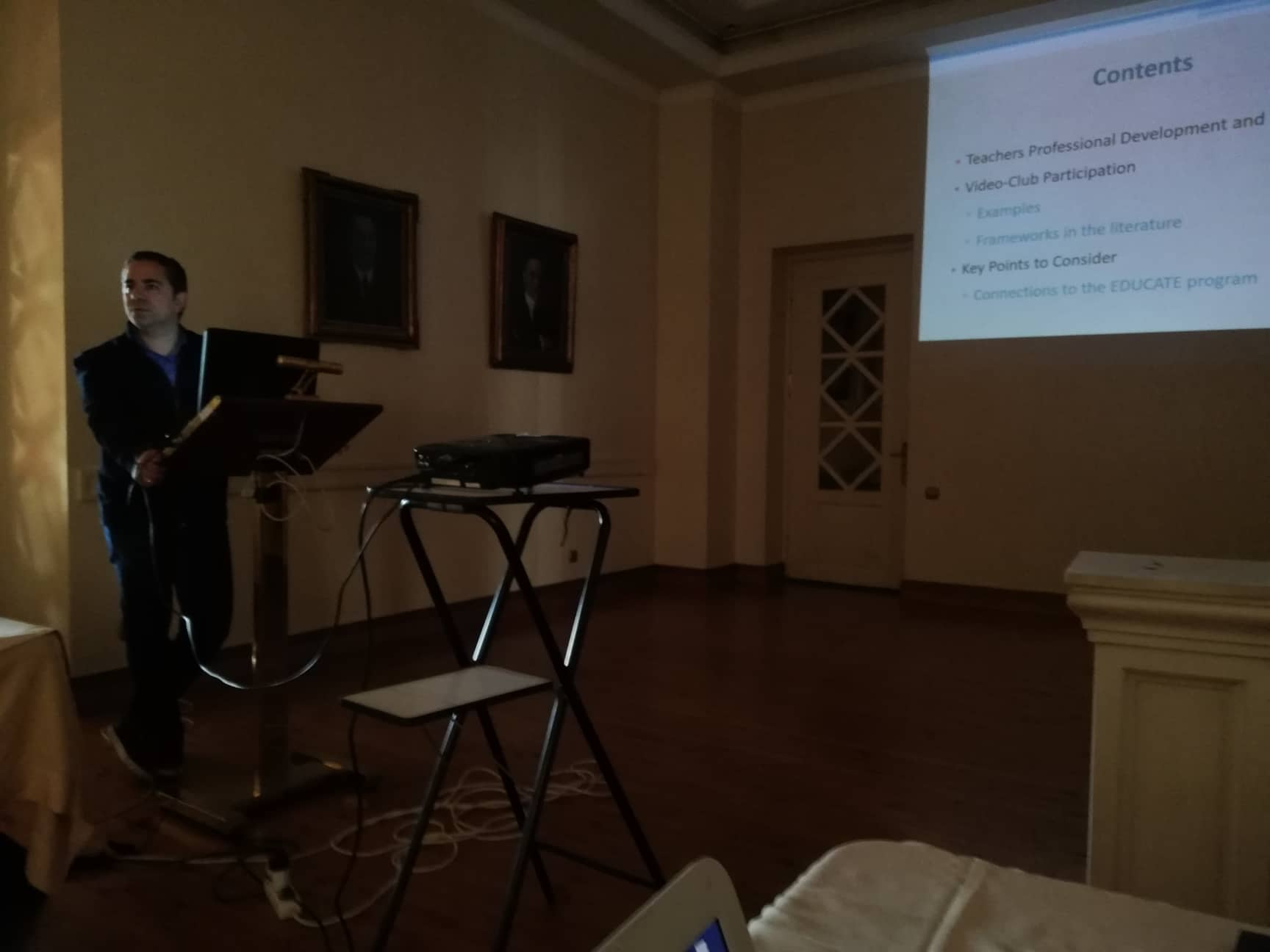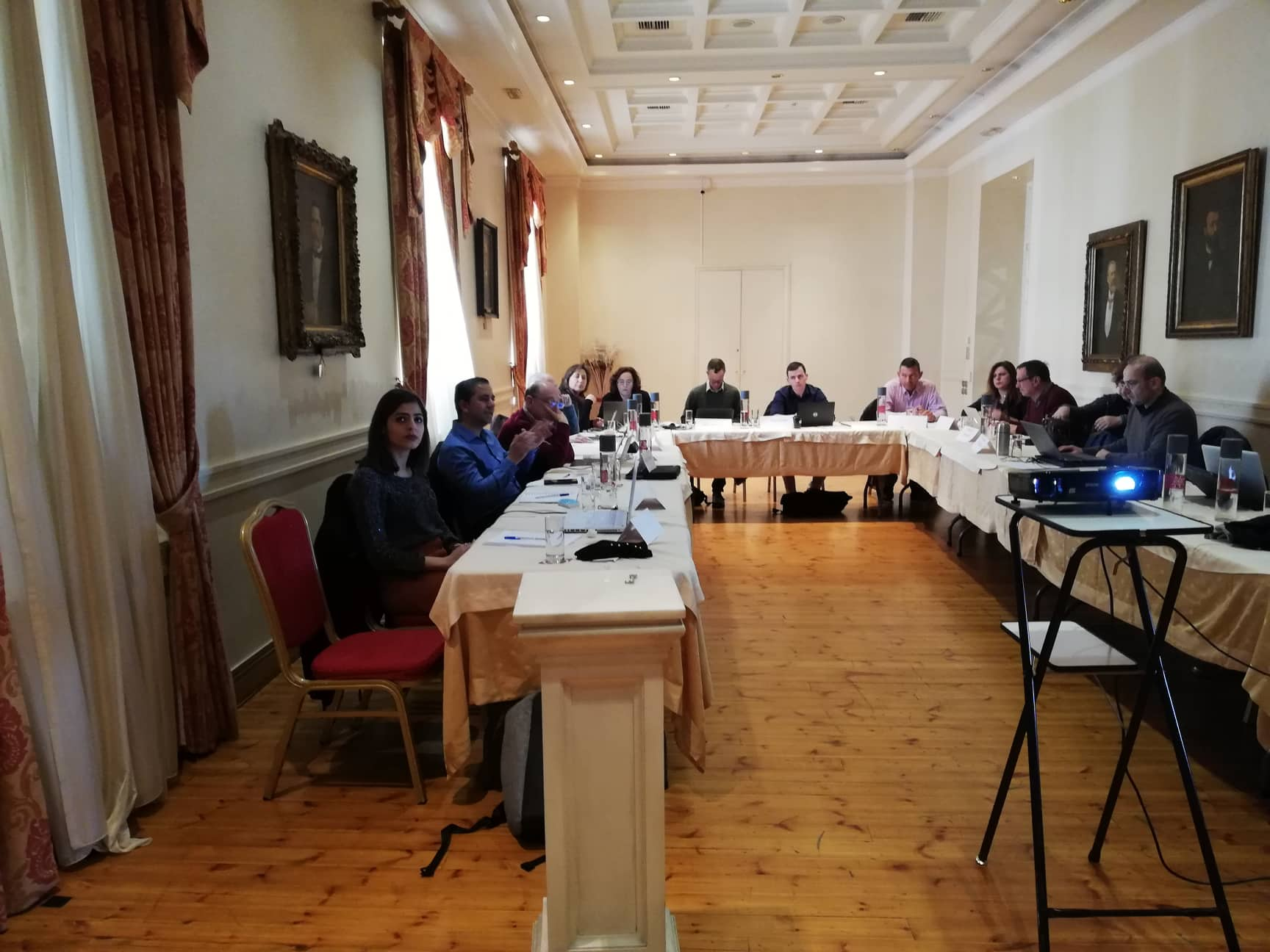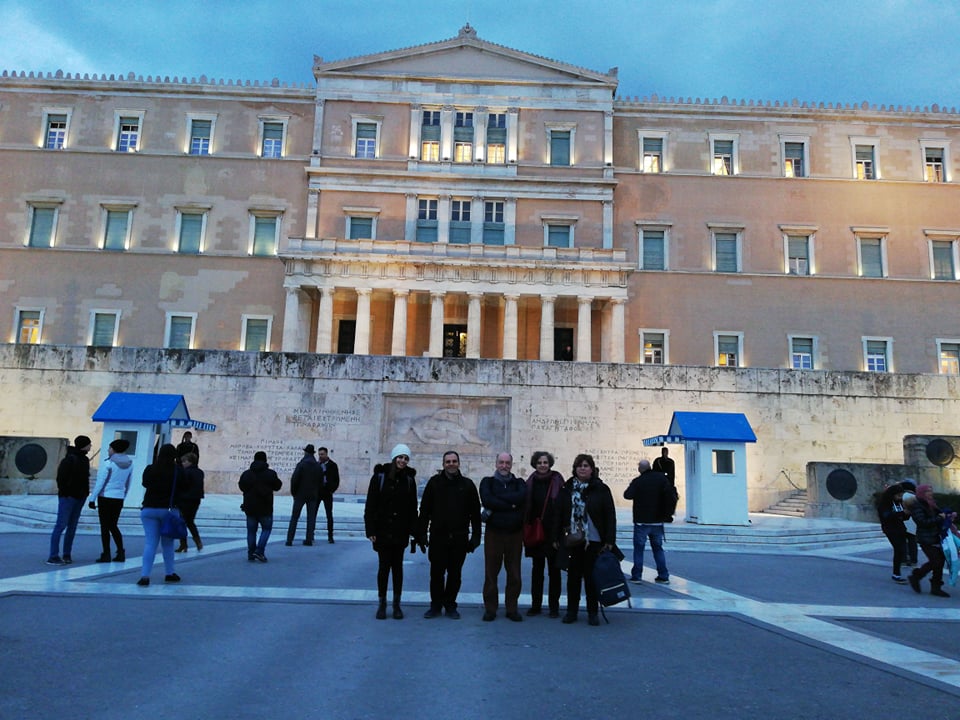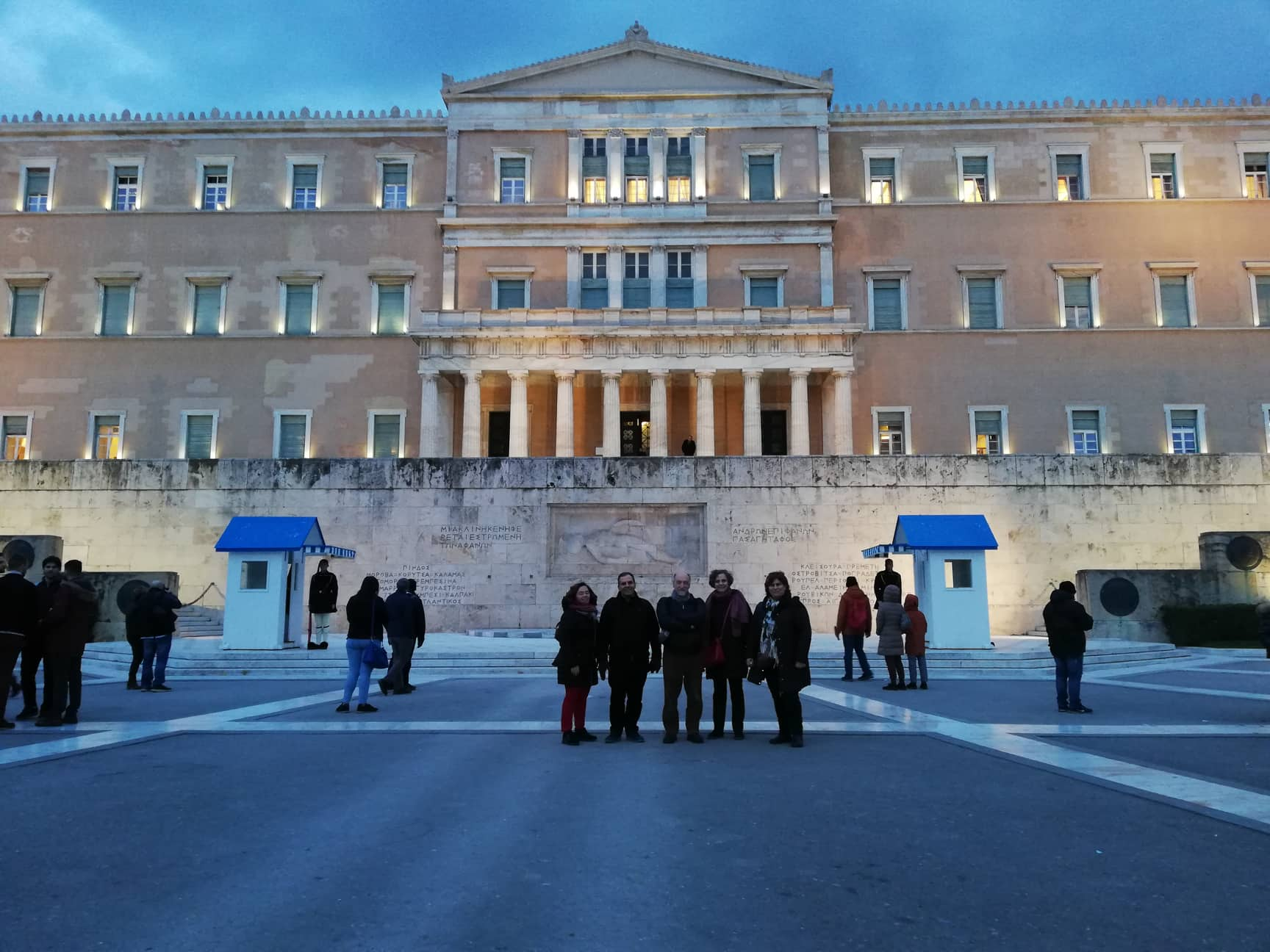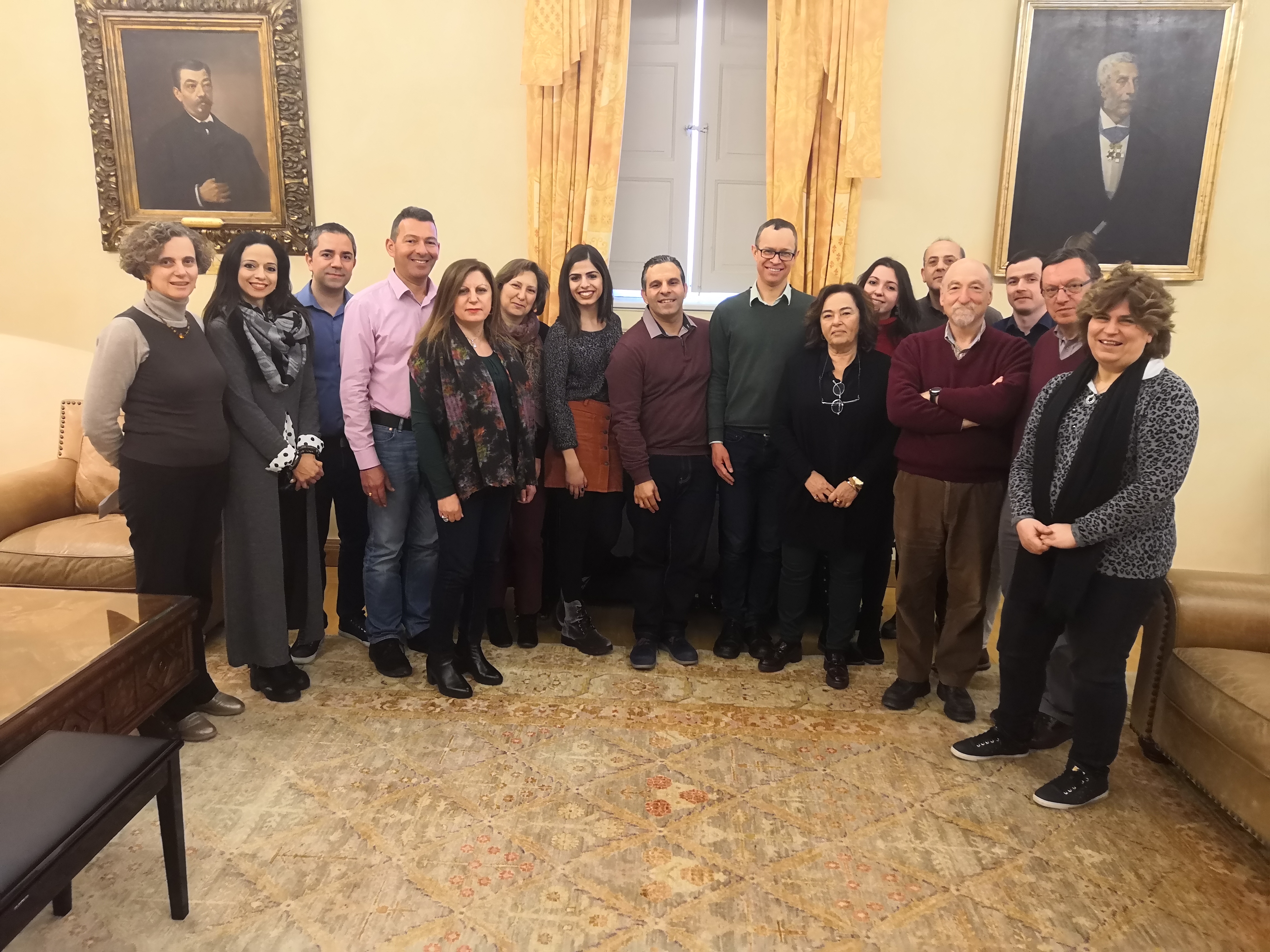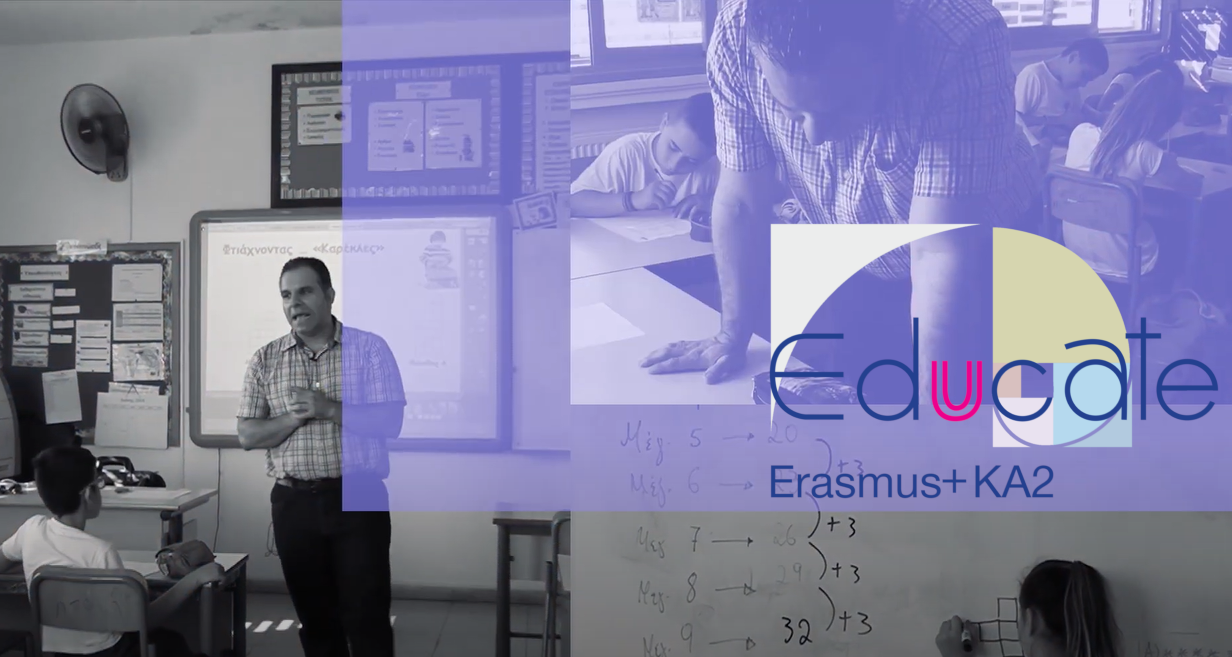Project Meetings

- 1st Transnational and Training Meeting of the EDUCATE Project [see more]
- 2nd Transnational and Training Meeting of the EDUCATE Project [see more]
- 3rd Transnational and Training Meeting of the EDUCATE Project [see more]
- 4th Transnational and Training Meeting of the EDUCATE Project [see more]

|
| |
|---|---|
|
The 2nd Transnational and Training Meeting took place in February 2018 in Portugal. During the 2nd Transnational Meeting, which preceded the Training Meeting, the comprehensive list of needs and challenges based on the needs’ analysis in each country, which was formed during the first phase of the project, was discussed to determine which challenges and needs are going to be addressed by the EDUCATE packages. Also, the design principles and the structure of the EDUCATE packages were co-determined. The aim of the 2nd Training event was to train participants on issues of curriculum development since such expertise was needed to effectively carry out the tasks involved in the second phase of the project. In particular, participants worked on developing parts of the EDUCATE training materials for teachers and teacher educators, drawing on the comprehensive list of teachers' needs and challenges, the decisions taken during the 2nd Transnational Meeting, as well as the knowledge gained and the skills developed during this event. |
Photo Gallery
|


|
The 4th Transnational and Training Meeting of the EDUCATE project took place in Greece, in February 2019. The 4th Transnational Meeting was a critical point in the project because it was about half-way through the implementation of the EDUCATE packages. Specifically, in this meeting, decisions regarding the third and the fourth phase of the project were finalized and codified. Also, the teacher-educator logs and teacher reflection cards were considered to determine if any additional modifications needed to be made. Another important task during this meeting was to finalize the observational rubric, focusing on issues of mathematically challenging tasks and differentiation. The 4th Training event, which was attached to the 4th Transnational meeting, had two goals. First, to provide training on using the finalized version of the observational rubric to code videotaped lessons. Second, to provide training on analyzing the project data both from quantitative and qualitative respect. This training was necessary because, after the meeting, participants had to analyze a large amount of data collected during the third phase of the project. |
Photo Gallery
|
|||||||||

[back]
Researchers
Adoniou, M. & Qing, Y. (2014). Language, mathematics and English language learners. The Australian Mathematics Teacher, 70(3), 3-13.
Arbaugh, F., & Brown, C. A. (2006). Analyzing mathematical tasks: A catalyst for change? Journal of Mathematics Teacher Education, 8(6), 499-536
Arbaugh, F., & Brown, C. A. (2004). What makes a mathematical task worthwhile? Designing a learning tool for high school mathematics teachers. In R. N. Rubenstein & G. W. Bright (Eds.), Perspectives on the teaching of mathematics: Sixty–sixth yearbook (pp. 27-41). Reston, VA: NCTM.
Boston, M. D., & Smith, M. S. (2009). Transforming secondary mathematics teaching: increasing the cognitive demands of instructional tasks used in teachers’ classrooms. Journal of Research in Mathematics Education, 40(2), 119-156.
Boston, M. D., & Smith, M. S. (2011). A ‘task-centric approach’ to professional development: enhancing and sustaining mathematics teachers’ ability to implement cognitively challenging mathematical tasks. ZDM, 43(6-7), 965-977.
Cathcart, W., Pothier, Y., Vance, J. & Bezuk, N. (2000). Learning Mathematics in Elementary and Middle Schools. United States: Merrill Prentice Hall.
Cengiz, N., Kline, K. & Grant, T. J. (2011). Extending students’ mathematical thinking during whole-group discussions. Journal of Mathematics Teacher Education, 14(5), 355-374.
Chapin, S. H., O’Connor, C., & Anderson, N. C. (2009). Classroom discussions: Using math talk to help students learn (2nd ed.). Sausalito, CA: Math Solutions.
Chi, M. T. (2009). Active‐constructive‐interactive: A conceptual framework for differentiating learning activities. Topics in Cognitive Science, 1(1), 73-105.
Cobb, P., Wood, T., Yackel, E., & McNeal, B. (1992). Characteristics of classroom mathematics traditions: An interactional analysis. American Educational Research Journal, 29, 573-604.
Dekker, R. (1987). Roos and José, two children in a mixed ability group. Educational Studies in Mathematics, 18, 317-324.
Delaney, S. 2017, Become the Primary Teacher Everyone Wants to Have, Routledge, Milton Park, Oxon.
Diezmann, C. M., & Watters, J. J. (2000). Catering for mathematically gifted elementary students: Learning from challenging tasks. Gifted Child Today, 23(4), 14-52.
Dooley, T. (2009). A teacher's role in whole-class mathematical discussion: Facilitator of performance etiquette? In V. Durand-Guerrier, S. Souryn Lavergne and F. Arzarello (Eds.), 6th Congress of the European Society for Research in Mathematics Education (CERME) (pp. 894 - 903). Lyon, France: INRP.
Doyle, W. (1988). Work in Mathematics Classes: The Context of Students’ Thinking During Instruction. Educational Psychologist, 23(2), 167 – 180.
González, G. & Eli, J. A. (2017). Prospective and in-service teachers’ perspectives about launching a problem. Journal of Mathematics Teacher Education, 20(2), 159–201.
Güven, N. D., & Dede, Y. (2017). Examining social and sociomathematical norms in different classroom microcultures: Mathematics teacher education perspective. Educational Sciences: Theory & Practice, 17, 265–292.
Henningsen, M., & Stein, M. K. (1997). Mathematical tasks and student cognition: Classroom-based factors that support and inhibit high-level mathematical thinking and reasoning. Journal for research in mathematics education, 524-549.
Herbst, P. G. (2003). Using novel tasks in teaching mathematics: Three tensions affecting the work of the teacher. American Educational Research Journal, 40(1), 197-238.
Homans, G. (1951). The Human Group. London, UK: Routledge.
Kersaint, G. L. A. D. I. S. (2015). Orchestrating mathematical discourse to enhance student learning. Curriculum Associates, LLC.
Laborde, C. (2001). Integration of technology in the design of geometry tasks with Cabri-Geometry. International Journal of Computers for Mathematical Learning, 6(3), 283-317.
Lampert, M (2001). Teaching problems and the problems of teaching. New Haven: Yale University Press.
Lozano, M. (2017). Investigating task design, classroom culture and mathematics learning: an enactivist approach, ZDM: Mathematics Education, 49 (6), 895-907.
Mariotti, M. A. (2012). Proof and proving in the classroom: Dynamic Geometry Systems as tools of semiotic mediation. Research in Mathematics Education, 14(2), 163-185.
Mason, J. 2002, Minding Your Qs and Rs: effective questioning and responding in the mathematics classroom, in L. Haggerty (Ed.) Aspects of Teaching Secondary Mathematics: perspectives on practice, RoutledgeFalmer, London, p248-258. ISBN 0-415-26081-7
O'Brien, T., & Guiney, D. (2001). Differentiation in teaching and learning. A&C Black.
Pasquale, M. (2016). Productive Struggle in Mathematics. Interactive STEM Research+ Practice Brief. Education Development Center, Inc. Retrieved from http://interactivestem.org/wp-content/uploads/2015/08/EDC-RPC-Brief-Productive-Struggle.pdf
Ponte, J. P., & Quaresma, M. (2016). Teachers’ professional practice conducting mathematical discussions. Educational Studies in Mathematics, 93(1), 51-66.
Rowland, T., Huckstep, P., & Thwaites, A. (2005). Elementary teachers’ mathematics subject knowledge: the knowledge quartet and the case of Naomi, Journal of Mathematics Teacher Education 8(3), 225-281.
Sherin, M. G. (2002). A balancing act: Developing a discourse community in a mathematics classroom. Journal of Mathematics Teacher Education, 5, 205–233.
Smith, M. S., Hughes, E. K., Engle, R. A., & Stein, M. K. (2009). Orchestrating discussions of challenging tasks: Keeping your eye on the mathematics to be learned. Mathematics Teaching in the Middle School, 14(9), 548-556.
Smith, M. S., Stein, M. K., Arbaugh, F., Brown, C. A., & Mossgrove, J. (2004). Characterizing the cognitive demands of mathematical tasks: A task-sorting activity. In G. W. Bright & R. N. Rubenstein (Eds.), Professional development guidebook for perspectives on the teaching of mathematics: Companion to the sixty–sixth yearbook (pp. 45-72). Reston, VA: NCTM.
Star, J. R. (2015, April). When not to persevere – Nuances related to perseverance in mathematical problem solving (White paper). Chicago, IL: Spencer Foundation. Retrieved from http://hub.mspnet.org/index.cfm/28127/
Stein, M. K., & Smith, M. S. (1998). Mathematical tasks as a framework for reflection: From research to practice. Mathematics Teaching in the Middle School, 3(4), 268-275.
Stein, M. K., Engle, R. A., Smith, M. S.& Hughes, E. K. (2008). Orchestrating productive mathematical discussions: Five practices for helping teachers move beyond show and tell. Mathematical Thinking and Learning, 10(4), 313-340.
Stein, M. K., Grover, B. W., & Henningsen, M. (1996). Building student capacity for mathematical thinking and reasoning: An analysis of mathematical tasks used in reform classrooms. American educational research journal, 33(2), 455-488.
Stein, M. K., Remillard, J., & Smith, M. S. (2007). How curriculum influences student learning. In F. K. Lester (Ed.), Second handbook of research on mathematics teaching and learning (pp. 319-369). Charlotte, NC: Information Age Publishing.
Stein, M. K., Smith, M. S., Henningsen, M. A., & Silver, E. A. (2016). Implementing Standards-Based Math Instruction: A Casebook for Professional Development. Τόπος: Teachers College Press.
Stein, M., Carnine, D. & Silbert, G. 1997, Designing Effective Mathematics Instruction: A Direct
Stigler, J.W., & Hiebert, J. (1999). The teaching gap: Best ideas from the world’s teachers for improving education in the classroom. New York: The Free Press.
Sullivan, P., Askew, M., Cheeseman, J., Clarke, D., Mornane, A., Roche, A., & Walker, N. (2015). Supporting teachers in structuring mathematics lessons involving challenging tasks. Journal of Mathematics Teacher Education, 18(2), 123-140.
Sullivan, P., Mousley, J., & Zevenbergen, R. (2006). Teacher actions to maximize mathematics learning opportunities in heterogeneous classrooms. International Journal of Science and Mathematics Education, 4, 117-143.
Tomlinson, C. A. (2014). The differentiated classroom: Responding to the needs of all learners (2nd ed.). VA: Association for Supervision and Curriculum Development.
Tomlinson, C. A. (2017). How to differentiate instruction in mixed-ability classrooms (3rd ed.) Alexandria, VA: Association for Supervision and Curriculum Development.
Van den Heuvel-Panhuizen, M. (2000). Mathematics education in the Netherlands: A guided tour. Freudenthal Institute Cd-rom for ICME9. Utrecht: Utrecht University.
Wallace, A., White, M. & Stone, R. 2010, “Sand and Water Table Play”, Teaching Children Mathematics, vol. 16, no. 7, pp. 394 – 400.
Way, J. (2008). Using questioning to stimulate mathematical thinking. Australian primary mathematics classroom, 13(3), 22-27.
Williams, E. & Shuard, H. ((1994). Primary Mathematics Today. United Kingdom: Longman.
Yackel, E. & Cobb, P. (1996). Sociomathematical Norms, Argumentation, and Autonomy in Mathematics. Journal for Research in Mathematics Education, 27 (4), 458- 477.
E-Learning Platform

OUR VISION
The transnational project EDUCATE aimed at integrating cognitive activation (i.e., working with challenging tasks) and differentiation, aspiring to promote both aspects in teaching Mathematics. To this end, educational materials were developed with the intention of supporting teachers in engaging all their students in challenging work on the one hand and scaffolding teacher educators in productively supporting teachers in doing so on the other hand.
Promotional video:
WHAT IS THE EDUCATE E-LEARNING PLATFORM
- On-line professional development (PD) platform
- EDUCATE e-learning course
- The e-learning course is addressed to both
- teacher educators
- teachers (of mathematics)
- The Project’s objectives
- The main outcomes
- The EDUCATE materials / packages for Teachers
- The EDUCATE materials / packages for Teacher Educators
- The experimentation/implementation of these materials
- Relevant videos
- Relevant and up-to-date articles
- Quizzes and assessment tasks
You are invited to SIGN UP to experiment with and implement these materials (which can be found on the e-learning platform) either individually or in groups. Should you have any questions about the project or if you have any feedback for its rationale, activities, and publications, please explore our website to get more information about its progress and its outcomes.
CLick here to see the EDUCATE e-learning platform flyer

Dissemination
Presentations at Local Conferences:
- ΙΕ΄ Συνέδριο Παιδαγωγικής Εταιρείας Κύπρου [in Greek]
- Encontro de Investigação em Educação Matemática 2018 (EIEM 2018) [in Portuguese]
- Διαδικτυακό Συνέδριο μέσω Ms Teams [in Greek]
Presentations at International Conferences:
- Eleventh Congress of the European Society for Research in Mathematics Education (CERME11) [in English]
- Eleventh Congress of the European Society for Research in Mathematics Education (CERME11) [in English]
- Eleventh Congress of the European Society for Research in Mathematics Education (CERME11) [in English]
- Charalambous, C. Y., Philippou, S., Olympiou, G., & Georgiou, K. (2021, April). Experimenting with differentiation and challenging work during prospective teachers’ field placement: A video-club case study. Paper presented at the 105th digital Annual Meeting of the American Education Research Association. [in English]
- Charalambous, C. Y., Agathangelou, S., Kasapi, E., & Christofidou, E. (2021, April). Learning to teach ambitiously: a multiple case-study of practicing teachers’ experimentation with enablers and extenders. Paper presented at the 105th digital Annual Meeting of the American Education Research Association. [in English]
- ΙΕ΄ Συνέδριο Παιδαγωγικής Εταιρείας Κύπρου [in Greek]
- Eleventh Congress of the European Society for Research in Mathematics Education (CERME11) [in English]
- Eleventh Congress of the European Society for Research in Mathematics Education (CERME11) [in English]
- Eleventh Congress of the European Society for Research in Mathematics Education (CERME11) [in English]
Teachers’ Educators
Indicative Cases of Practice from the EDUCATE Professional Development Materials for Teacher Educators
Module 1
Module 2
Module 3
- (Pre-)Primary Education - Case of Practice 1
- Secondary Education - Case of Practice 1
Module 4
- (Pre-)Primary Education - Case of Practice 1
- Secondary Education - Case of Practice 1
Module 5
- (Pre-)Primary Education - Case of Practice 1
- Secondary Education - Case of Practice 1
If you want to read, experiment with and implement the Teacher Modules, visit and sign up to our EDUCATE e-learning platform: http://educate-platform.com/


